Sometimes the people who innovate are forgotten in favour of those who refine their ideas.
Whatsisname, the inventor of the mouse that Steve Jobs ‘refined’, is a prime example.
Few people today know the name Kingsley Manton & Palmer, let alone that of its creative partner Brian Palmer.
Yet Brian wrote the first ad to run on U.K television.
He set up the first agency the U.K. after World War Two.
His agency was the first to work open plan, first to list on the stock exchange and the first U.K. agency to open in the U.S.
Their work is from another world, as evocative of the Swinging Sixties as a pair of purple velvet flared trousers, an E-Type Jag or a tie dyed t-shirt.
The Regent Petrol campaign feels like it’s come straight from the Austin Powers art department.
Where was your first advertising job?
I started my advertising career at an agency called C. F. Higham, it was one of the big English agencies at the time, in Curzon Street, Mayfair, possibly the biggest in the thirties.
It was run by one of the first advertising Knights; Sir Charles Higham, he got his Knighthood for promoting Empire Trade.
 What did you do?
What did you do?
I was an intern really, a runner, I started on £4 a week, aged 20.
I sort of learned the trade there.
And then I got a job as a junior copywriter at an American agency; Young & Rubicam, which was pretty small back then, but really going places.
They were based at the top end of Regent Street, 285, which they thought was a lucky, because their office on Madison Avenue in New York was also 285.
Why were they ‘really going places’?
Well, they were part of the whole wave of American companies moving into Europe after the war.
Companies like Proctor & Gamble, Heinz had always been here, but had been in hibernation during the war.
We had General Foods, which was then very big, a huge company, now part of Pepsi Co, we had Unilever… Oh, and Mars, all of which were FMGC, do people use that phrase any more?
Sometimes Brian, the millennials not so much.
Ok, well FMGC companies who were keen to ride the recovery of Europe really, so it was a very exciting place to be.
When do you remember the idea of television advertising being a possibility in Britain?
About a year before it happened, we knew commercial television was going to come to this country, but there was a hell of a lot opposition to it.
John Wilmot, the then Labour MP for Deptford, (he later became Lord Wilmot), told the House of Commons that the “nightly poison of advertising, which boosts the sale of goods to the working class, is against the national interest.”
He was Labour!
Thank goodness he and other politicians like him failed in their quest to stop television advertising coming to Britain, they could not have been more wrong about its effects.
Instead of corrupting the population, it became the engine of Britain’s economic growth and prosperity in the 1960s.
So did you want to work on tv advertising?
Yes, I bet my career on it.
I asked my boss, Alan Kirby, if I could specialise and learn about television.
He said ‘Brian I think you’re mad, it’ll never be a major medium.’
Fortunately he was wrong.
Why didn’t you listen to your boss?
Do you really want to know? I was at a lunch at the Dorchester, being hosted by some American network, I think NBC, well the head of the network gave a speech about Commercial Television.
I was completely inspired!
He said that when you can show people how things work in their houses, it will be the greatest selling medium ever seen, furthermore, it has the possibility to bring politicians to you instead of having to go to their meetings.
Remember, this is 1953.
Predicting that whole Kennedy-Nixon-Sweatathon? (The vote changing tv appearance that swung the election.)

It wasn’t long after that.
And he went on to say we will all have slaves through commercials television, all our households will have slaves, made of steel and iron to do the washing and washing up.
Nobody had washing machines or dishwashers at that time, the establishment of fridges was very low, about 15%.
I came out fired up, ready to go, I thought I’d like a piece of that.
So how did you learn about it?
Young & Rubicam took the view that it was easier to teach people who understood advertising about film techniques than it was to hire film technicians and teach them about advertising.
Most of the other agencies did it the other way around, they hired people from the film industry, it didn’t work.
That’s interesting, it’s exactly what happened with digital.
Once the internet turned up most agencies hired technicians, people who understood how to make digital things out of pixels and got rid of people who understood communication.
Psychology, empathy, distilling thoughts, understanding the power of language, simply communicating with human beings, all these skills were relegated to being luxuries, not fundamentals.
Consequently, advertising fell off a cliff, it’s still strugling to recover.
True, well that’s what happened…so I was made Head of Television at Young & Rubicam.
It ultimately became the largest part of their business and fortunately enough for me I was able to move up and become a Creative Director, one of three at Y&R.
I’m presuming that ‘Head of Television’ then wouldn’t have been like ‘Head of Television’ now?
No, once it became obvious that tv was going to be the majority of the agency business I had the producers and creatives under my wing.
Shortly after you write the first tv ad ever to run in Britain?
Yes, I was the copywriter, I worked along-side the art director Dennis Auton, who had the ice block concept.
It so happened that the commercial I wrote was drawn out of a hat, so by chance it was actually the first one to appear. 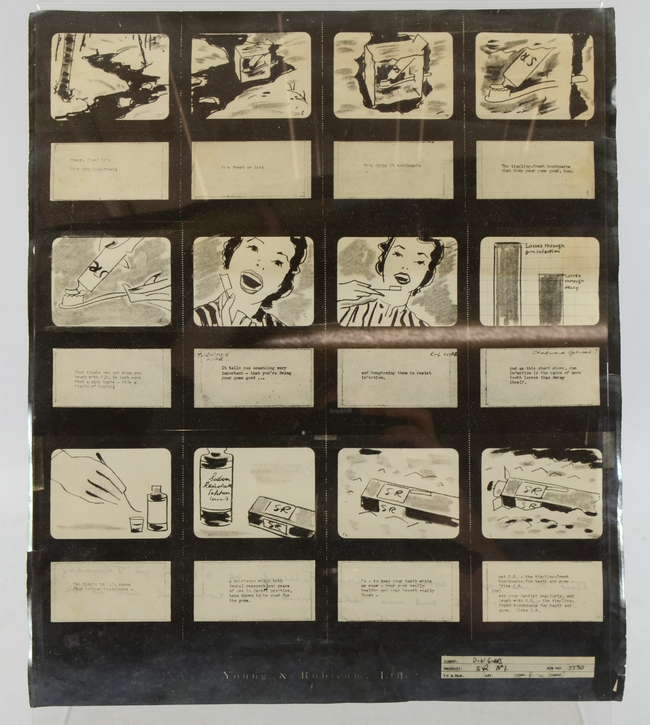 Drawn out of a hat?
Drawn out of a hat?
Well, the very first night the commercial aired it wasn’t called Commercial Television, you couldn’t buy the first slot, you could buy the first break for a premium, which many of our clients did.
Because we were Young & Rubicam, an American agency, we believed in television, so we persuaded our clients to do it, clients like Unilever, Proctor & Gamble and Heinz to embrace the new medium and take space right at the beginning.
Most British agencies didn’t believe in it.
Ice was a risk
We used a real block of ice for the long shots, the lights they used in those days were very hot indeed, it caused the ice to melt, also, the ice block steamed up completely, so you couldn’t see the tube of toothpaste inside, which was the whole point, so we used a plastic cube for the close-ups.
We didn’t really know what we were doing, to some extent we were learning on the job and so were the technicians.
8.12 pm, September 22nd, 1955, exciting?
Oh yes, it was an exciting thing at the time.
I was one of the very few people in England with a television set, I’d not long been married and I had a little flat in Notting Hill Gate, a few friends and colleagues gathered to watch the first night of commercial television.
Imagine my surprise when suddenly there was this starburst on the screen and it was my ad, none of us had any inkling that the first ad would turn out to be ours.
We knew the first product to be shown had been chosen by lot, but we didn’t know which one had won.
It was great! I was thrilled to bits, completely amazed and a bit frightened; would it be all right?
But it was a bit of a small earthquake in Chile that nobody heard, it was available only in London and the South East, and then only to people who had their sets specially modified.
So few people actually had televisions, there were only about a hundred thousand in the country.
At that time there was a question about whether ITV would even survive.
All the smart money, the big investors, got out and it was only left to the showbiz guys like Bernstein of Granada and that very famous agent…Lew Grade.
They kept their nerve and then suddenly picked up, somehow it got through to the mass of people and sort of reached critical mass, it suddenly took off.
If somebody in the street had a television aerial back then, people would go to their house, see ‘Dr. Finlay’ or ‘Coronation Street’ and I say ‘Ooh, I like that’.
This may seem like a daft question, but if there weren’t any TV commercials in this country, had you ever seen one before you wrote one?
Yes, there were lots of cinema commercials, I’d done those.
But nobody understood television, because the English style of television was different from the American system, which had sponsored programmes, the advertising was much more integrated, woven into the programme.
We had to develop spot advertising, which of course led to a few years later to Britain producing all those amazing film directors.
Ridley Scott, Alan Parker, Adrian Lynne, Hugh Hudson…
Yes, it was amazing! Because they had the discipline of telling a story in 30 seconds.
So you’ve produced the first ad in a new medium.
You’re building a whole new department with no road map.
Sounds exciting?
It was, it was wonderful, and bigger budgets every year, because the economy was expanding.
We launched Fairy Liquid, Maxwell House coffee; America’s favourite coffee, it’s vanished now.
You had one of the best jobs in the country, why leave?
Perhaps I peaked too young?
You get to the point where you sort of have, wouldn’t say a midlife crisis, but you get a bit itchy; ‘What else could or should I be doing?’
I knew I was never going to head the agency, I wasn’t American.
I didn’t want to join the international circuit, I had young children.
If you’re in your early thirties and you’ve got one of the best jobs in the country, you think you know how to do it, you think you know the advertising business and you think you know what’s wrong and how to put it right.
So how did you set up?
There was a group at the IPA that was a club for individuals, originally called the 44 Club, they’d have had meetings, discussion groups, lectures for individual’s rather than agencies.
At the time the IPA was trying to reach out to individuals, not corporate members.
The 44 Club, 44 members I assume?
No, it was at number 44 Berkley Square.
Well, I became the Chairman of the group.
The previous Chairmen was a chap called Michael Manton, before him it was a chap called David Kingsley.
That’s how I met my partners, David was at Benton & Bowles, where he was a very hot-shot Account Director.
Michael Manton was the creative chief of Crawford’s, which was then a very creative agency.
We would moan about the business, we we’d talk about our ideas, about one another, what was right and wrong about advertising and where it should be going.
One day we had lunch together at the White Tower and said why ‘we don’t do something about it?’ There were less start-ups then?
There were less start-ups then?
There were no start-ups.
It was probably the first new agency started since the war.
(CDP wasn’t a new agency, Dickenson and Pearce broke away from Colman Prentiss & Varley to buy into an existing agency called Collett.)
In those days the whole agency business was surrounded with restrictions and protections, in order to get commission from the media you had to be recognised.
To be recognised you had to have guarantees of financial status and professional competency.
Because obviously those days the agencies were responsible for paying the newspapers and handling the clients’ money, if the agency didn’t pay it would be the agency that got sued, not the client. The agency in turn then would have to sue the client in return for taking that responsibility.
For that, they got their 15% from the media.
But you had to be recognised.
Now three guys in a room can say they’re an agency, presumably you needed a large chunk of change to start an agency back then?
Not cash, but you certainly needed to have bank guarantees.
We had trouble doing that.
First we talked to the lovely Bank of Scotland, which was then in Burlington Street.
It’s where that famous clothing shop is, which has guys dancing on the doors and looks like a nightclub?
Abercrombie & Fitch? That was your bank?

Yes, that’s the one, the lovely Scots Bank Manager absolutely grilled us, then said no.
We had an offer of backing from Colonel Varley from CPV, he was very much in sympathy with what we wanted to do, he said ‘I’ll guarantee you on salaries for six months in return for a stake in the agency’.
His offer gave us confidence, but we never needed his offer in the end.
Were you bullish or nervous starting up?
Incredibly nervous.
We took some temporary offices in Piccadilly, hired desk space before it started. Michael said to me ‘Brian we don’t seem to have any typewriters?’ I said ‘I’m not the bloody office manager’ we all burst into laughter, there was no office manager, just three guys, we went out and bought some typewriters.
What was your mission?
We made a kind of manifesto of what we wanted to do and why we wanted to do it.
It was basically that majority of advertising agencies got fat and dumb.
The people clients were seeing weren’t the people actually doing the work, we said you’ll see us and the people who do the work.
When it gets too big for us to do that we’ll hire people who are as good as us.
In any case, however big get we’ll have a flat structure, not a pyramid structure.
That’s what we believed at the time.
We’d publicise it a lot, with Ad Weekly and so on. I don’t think Campaign existed back then?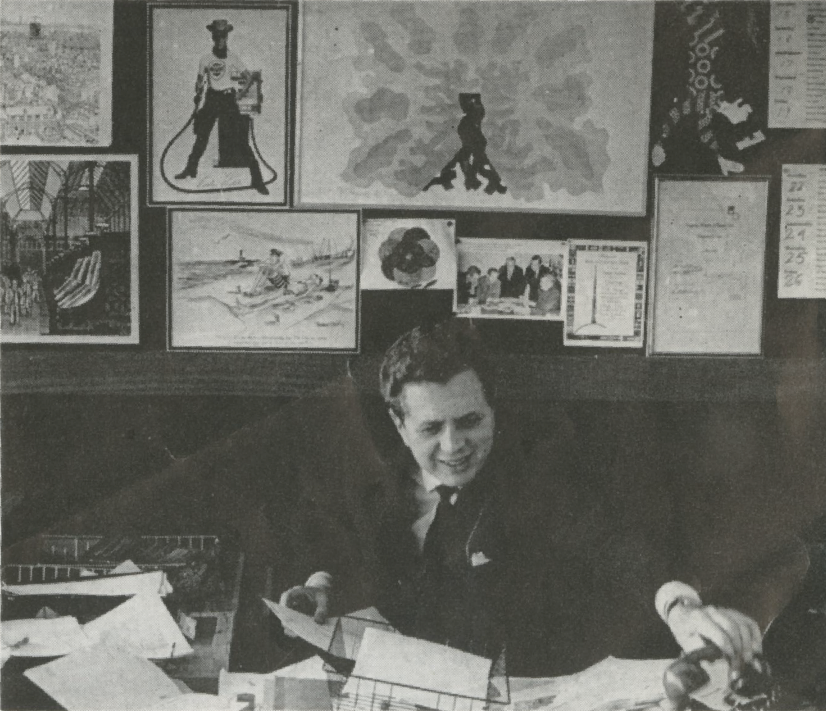 You could use that manifesto tomorrow.
You could use that manifesto tomorrow.
It’s the same issues, especially the issue that the people who pitch are never seen again.
So was it forceful and spirited?
Yes, it was full of adrenaline.
I’ve set up an agency without any business, a few of weeks in you think ‘what the hell I have done?’ It’s like jumping off a cliff and hoping there’s someone below to catch you.
Exactly, well you know what it feels like.
These things never go as planned, our first account was the last thing we would have ever thought of, a mail order account; Peter Saunders, who made twin sets and pearls for the middle-classes.
We didn’t even have an art director at that time, so I got in touch with an art director I used to work with at Y&R, a very good one, Rosie Oxley, who did ‘Beanz Meanz Heinz’.
She secretly did freelance with writer Phoebe Hitchens. We got Norman Parkinson to do the photography, we always aimed high.
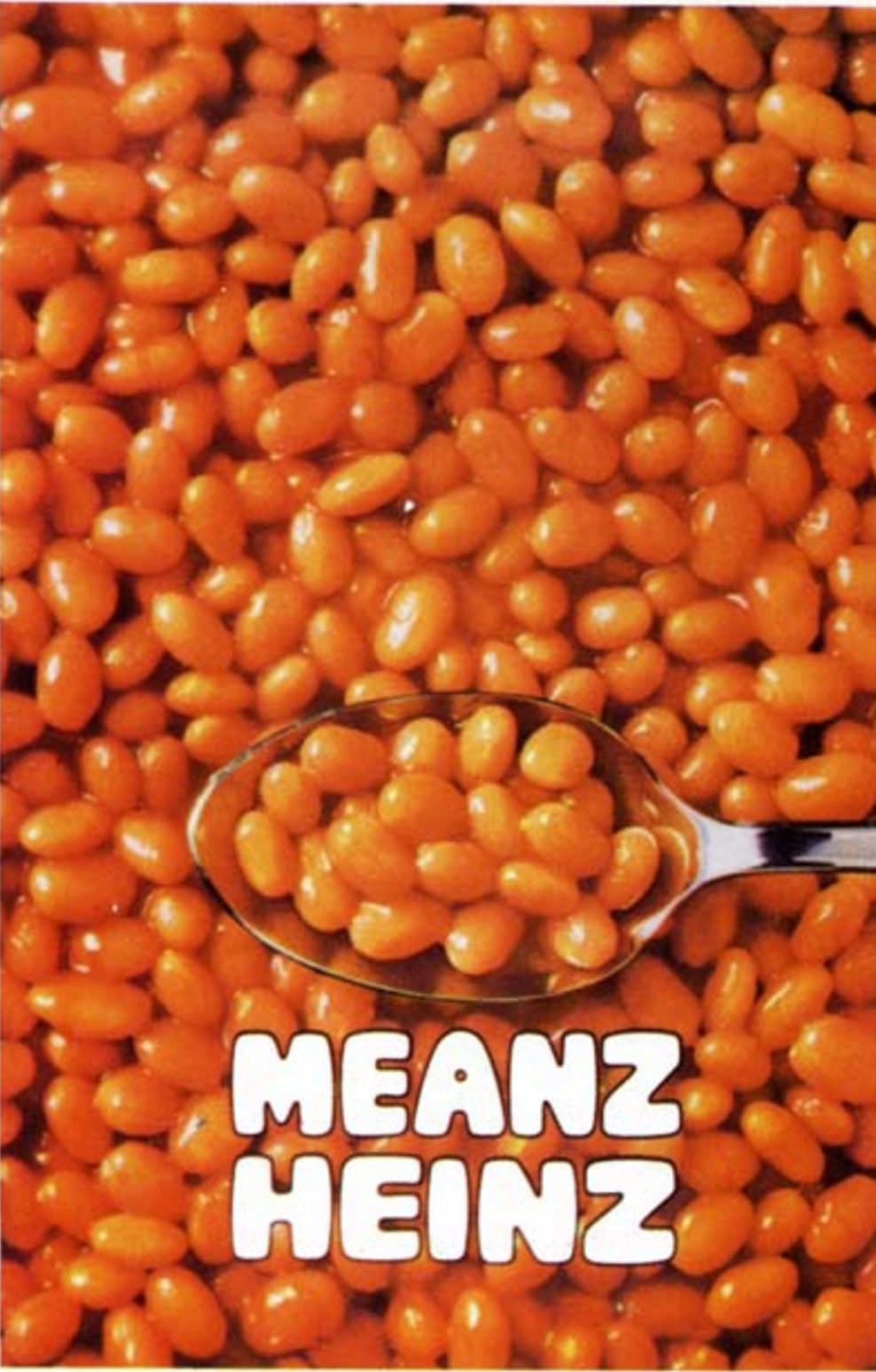
Ok, so you have your twin set and pearls account, whats next in?
I think the next one, the big one, was from British Nylon spinners, we were given their carpets and sheets.
We thought the commission system was going to break down, so initially we worked on a fee, then switched to commission, that’s when we knew we were financially secure.
That enabled us to take on proper offices in Thorn House.

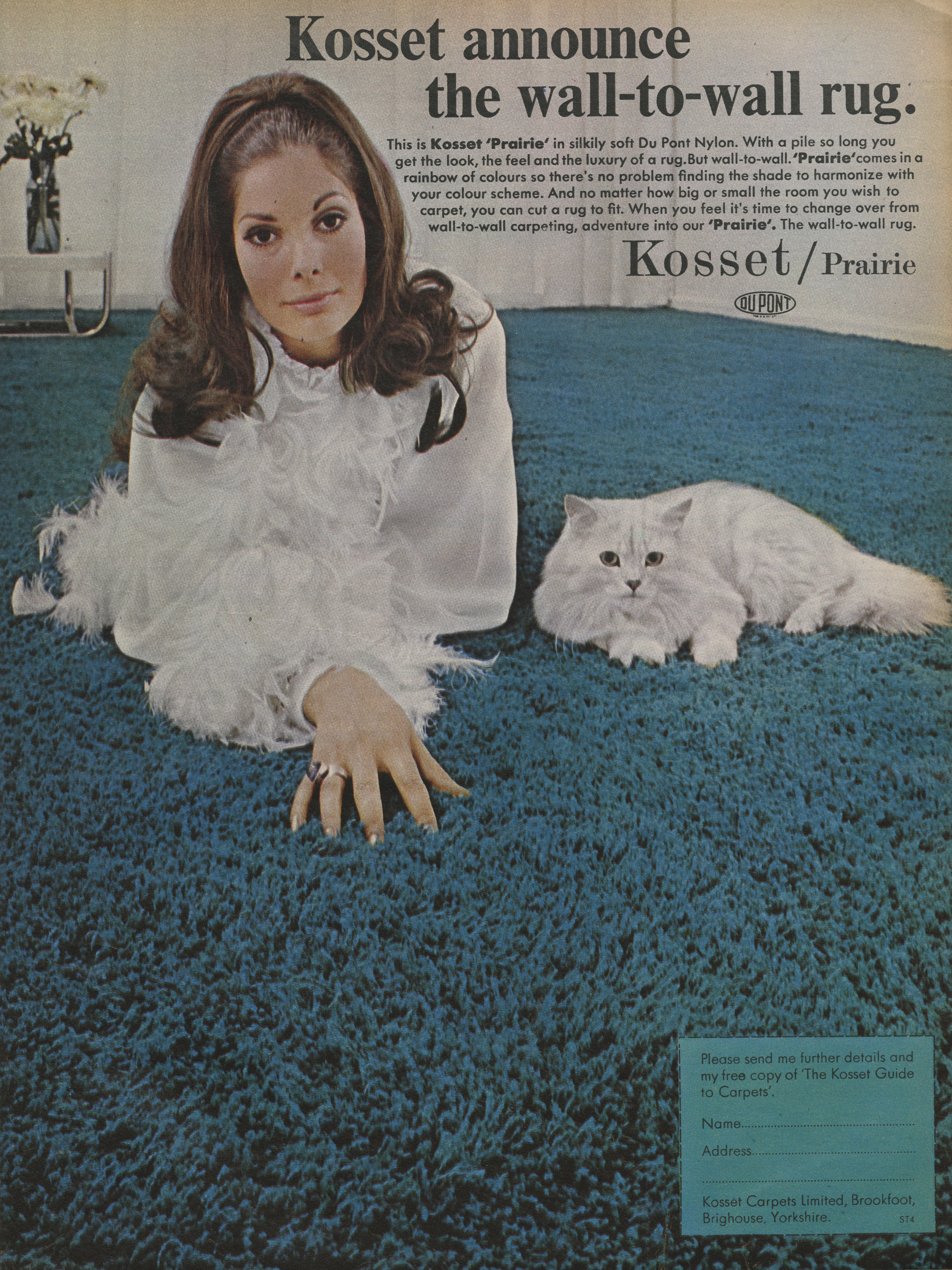
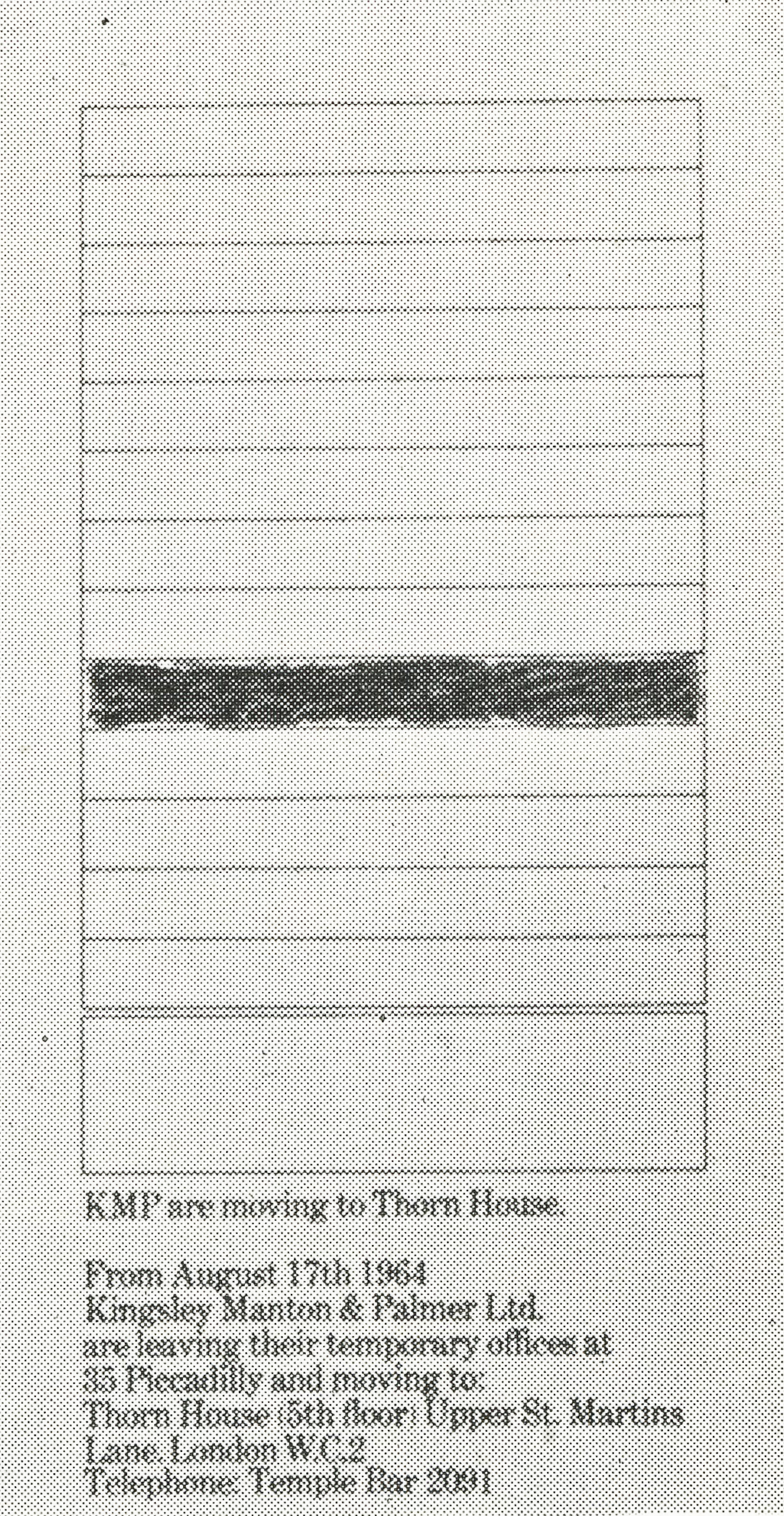 You get a brand new, shiny wall-free building?
You get a brand new, shiny wall-free building?
Yes, open-plan.
Again, it was openness, a flat structure.
The t partners worked around one desk, so that we knew what was going on, like a Victorian banking system. Was that seen as radical?
Was that seen as radical?
Very radical…completely radical, in fact a lot of people didn’t like it at all, people probably still don’t like working that way.
We had conference rooms and interview rooms, but basically it was one big room.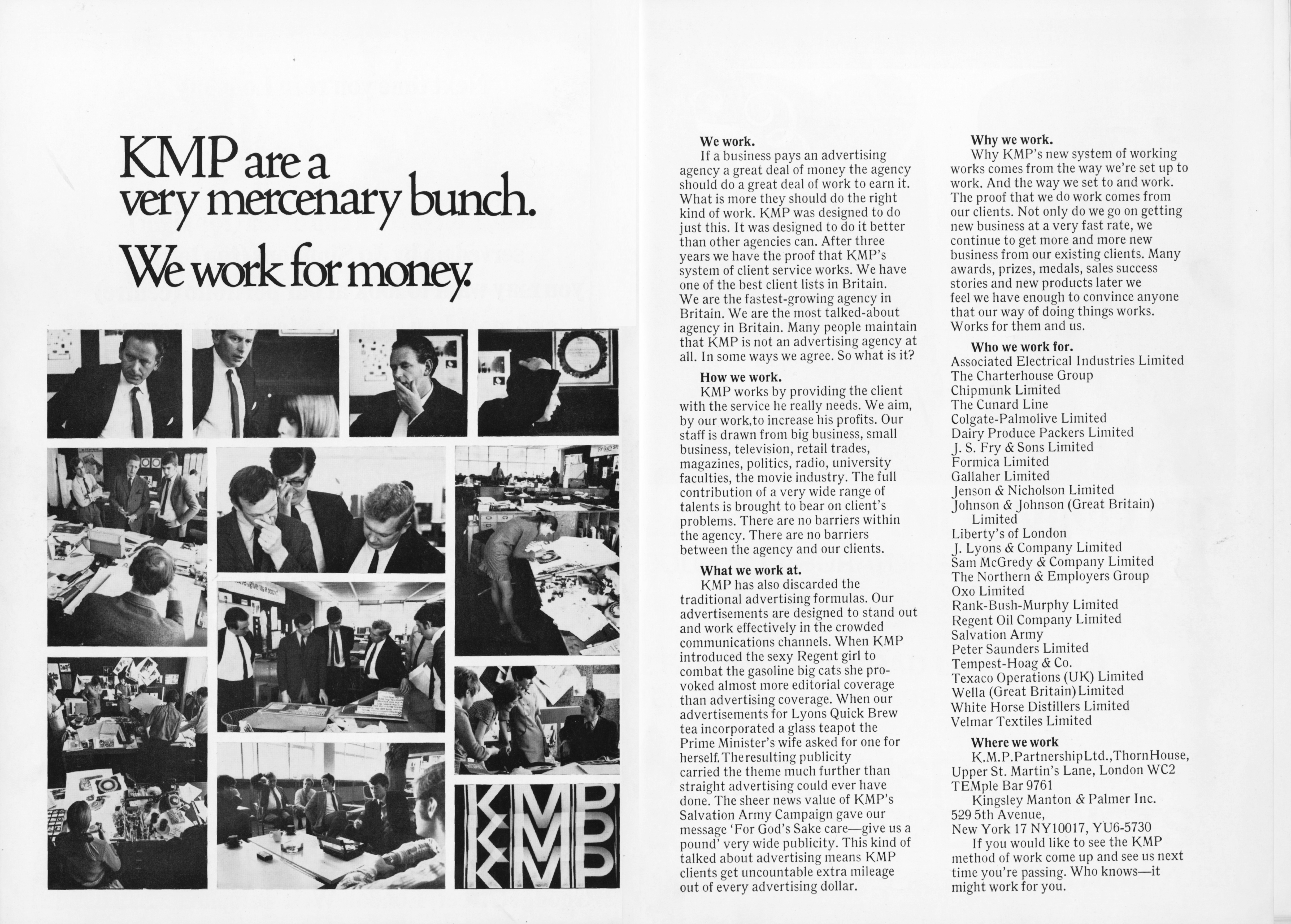
The offices must have given the impression of a cool and successful company, did it help business?
Yes, it did help, and where had doors we kept them shut so that people couldn’t see there was nothing behind them. What was the next big step-change?
What was the next big step-change?
I can’t remember exactly how, but we got a couple of huge accounts; Regent Petrol and Cunard, which was then, in 1965, British and huge, they said to us if you can open an office in New York within six months you can have our American account.
So we became the first English agency to open in New York.
Another first?
Yes, I think that’s correct?
How on earth did you do that pre-internet, mobile phone or even fax machine?
Yes, there were a lot of mistakes I can tell you.
But we suddenly, within a year or so, we got hot, so we could get presentations, interviews and so on.
So what got you hot?
It can’t have been your twin set and pearls account?
Or even your nylon carpet account?
I’m not sure, maybe the philosophy; ‘there’s another way’.
Maybe that top people were now more available?
Maybe the fact that we were of similar age to Marketing Directors?
It was kind of the spirit of the age, there was a lot of meritocracy, people who’d been to grammar schools were now coming to the top. David Kingsley had done just that. I guess each new generation of Marketing Director wants their own generation of agency.
I guess each new generation of Marketing Director wants their own generation of agency.
But it’s odd, when I look at the photographs of you guys, the founders of this revolutionary, hot, rule-breaking sixties agency, you don’t look very…swinging? No kaftans, beads, long hair or sandals? Well, let me tell you a story about that.
Well, let me tell you a story about that.
When we opened in New York we sent our best Creative guys; Mike Kidd and Terrence Griffin, it was the sixties of course and people like Hockney were just starting to become big in New York, and they wore jeans and open necked shirts, which was revolutionary at the time.
They had a chance to pitch for Lipton Tea so they went to their offices in White Plains.
When they got there all the secretaries started to come out of their offices, to look at these exotic creatures.
We didn’t get the business, the Marketing Director told us ‘Next time, take the clients to the zoo, don’t take the zoo to the clients.’
In America, the advertising business was even more Brooks Brothers than here.
Also, as partners we were young, so we didn’t want to frighten the animals, we were mostly talking to were ‘white shirts’.
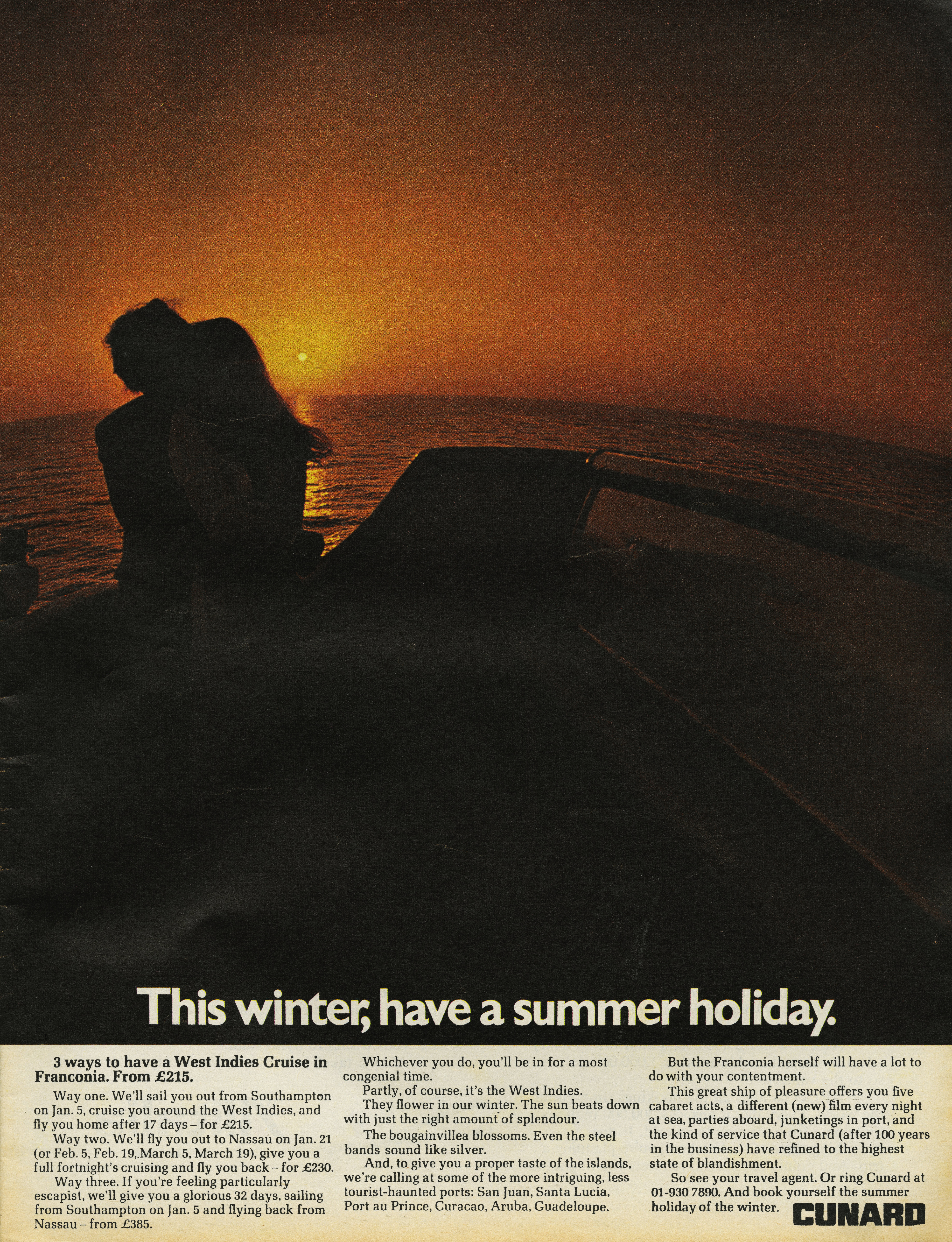



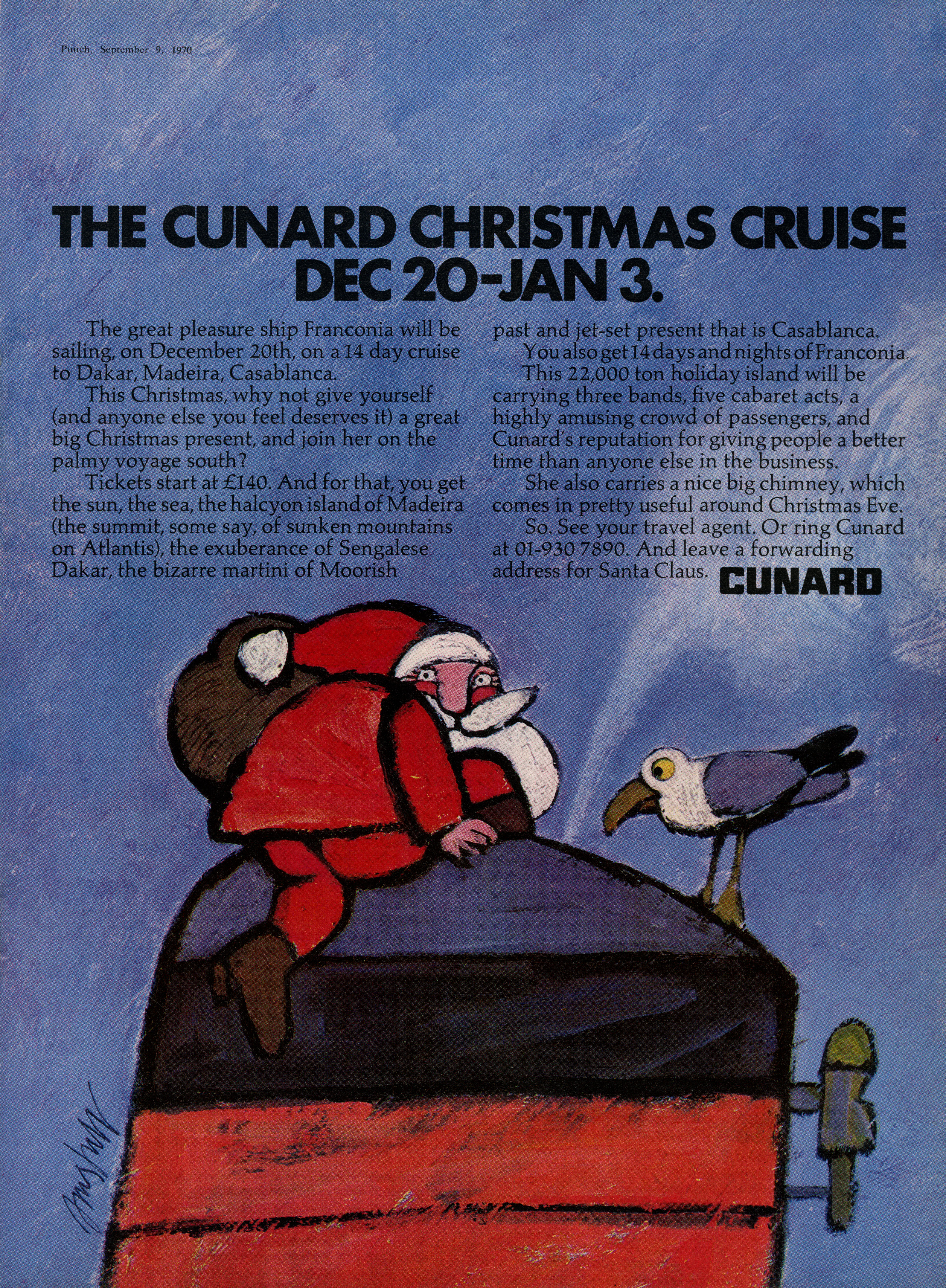 How did the New York agency do?
How did the New York agency do?
They mainly had the Cunard account and had also won some other business.
In those days, if you started a foreign subsidiary you were not supposed to subsidise it financially, you could only subsidise it by doing work for it, so London carried out consultancy work for the New York office, which helped to pay for it.
But when we went public in 1969 that was deemed by our auditors, and the Stock Exchange, to be a bit dodgy, so we merged the agency with another agency in New York.
That was the end of that, one forgets just how many restrictions there used to be around money, taxes and all sorts of things, it’s why company cars were so important, because the tax was so high.
Which ads were inspiring you at the time?
It would be the one for Volkswagen where it’s a terrible snowy day, and, suddenly, out of the snow, you hear a car starting up and it emerges as a Volkswagen.
The line is: “Do you ever think how the man who drives the snow-plough gets to the snow-plough?”
Regent Petrol.
Difficult to view with 2016 sensibilities.
But fifty years ago this was a very famous, much loved campaign that helped put KMP and Regent Petrol on the map.
Shot by the great Duffy.
It was a fully integrated campaign.
For example, a promotional package was sent to each Regent filling station which included:
a) A vinyl LP record entitled “The Lively One ’67”.
The album liner notes also gave suggestions for garage managers to help run their new promotion campaign including ‘Dress your attendants in Caroline kit’, Play the “Lively One” record’, ‘Use water pistol window washers’ and ‘Have holsters round pumps to hold nozzles’.
b) ‘Sensational’ new posters in various sizes.
c) A shiny new pump bezel.
d) A ‘fabulous’ life-size cut-out of the Regent Girl.
e) ‘Bullet hole’ stickers and T-shirts.
It must’ve been very different at the time?
Yes, well that’s how we got the business, we were the first to dramatise our presentations, Peter Marsh overtook us, when the Regent people came into our office everyone was wearing a Regent t-shirt, they were very new at the time, so because we’d gone to all that trouble they didn’t forget our presentation, we won the business.
But yes, we did more than just advertising, up until very recently the Country Life packaging was the still the one David Holmes designed for us.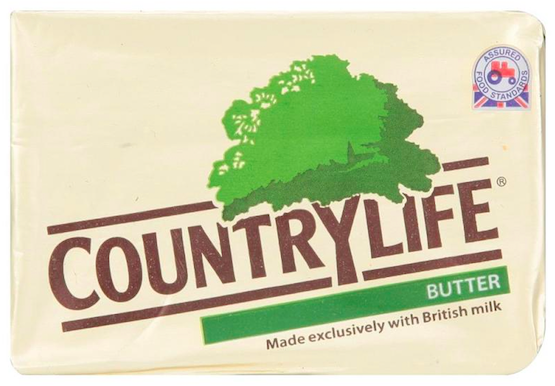
From the pitch in the sixties, we pitched along with the line ‘Brings you closer to a cow’…
‘Brings you closer to a cow’?
Yes, and when we pitched for that one we had a real cow outside our offices.
It didn’t go down very well with the client, the Milk Marketing Board.





 To give some context to how fresh the White Horse campaign was in 1966, here’s an ad from their previous campaign.
To give some context to how fresh the White Horse campaign was in 1966, here’s an ad from their previous campaign.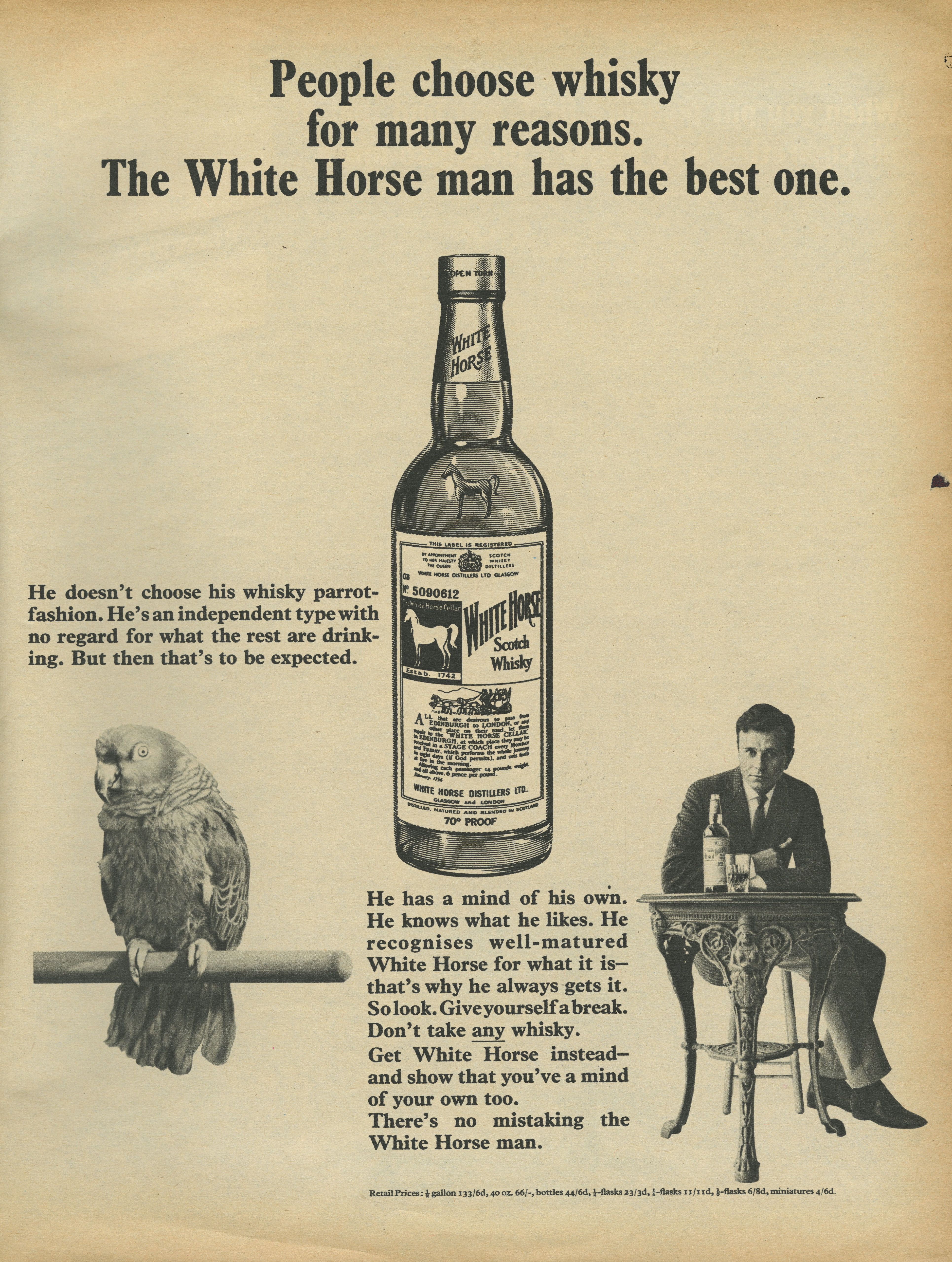 Did you pitch with the line ‘You can take a White Horse anywhere’?
Did you pitch with the line ‘You can take a White Horse anywhere’?
I think we probably did, I was certainly very much involved in that campaign, along with Mike Kidd and David Holmes as art directors.
That line ran for years.
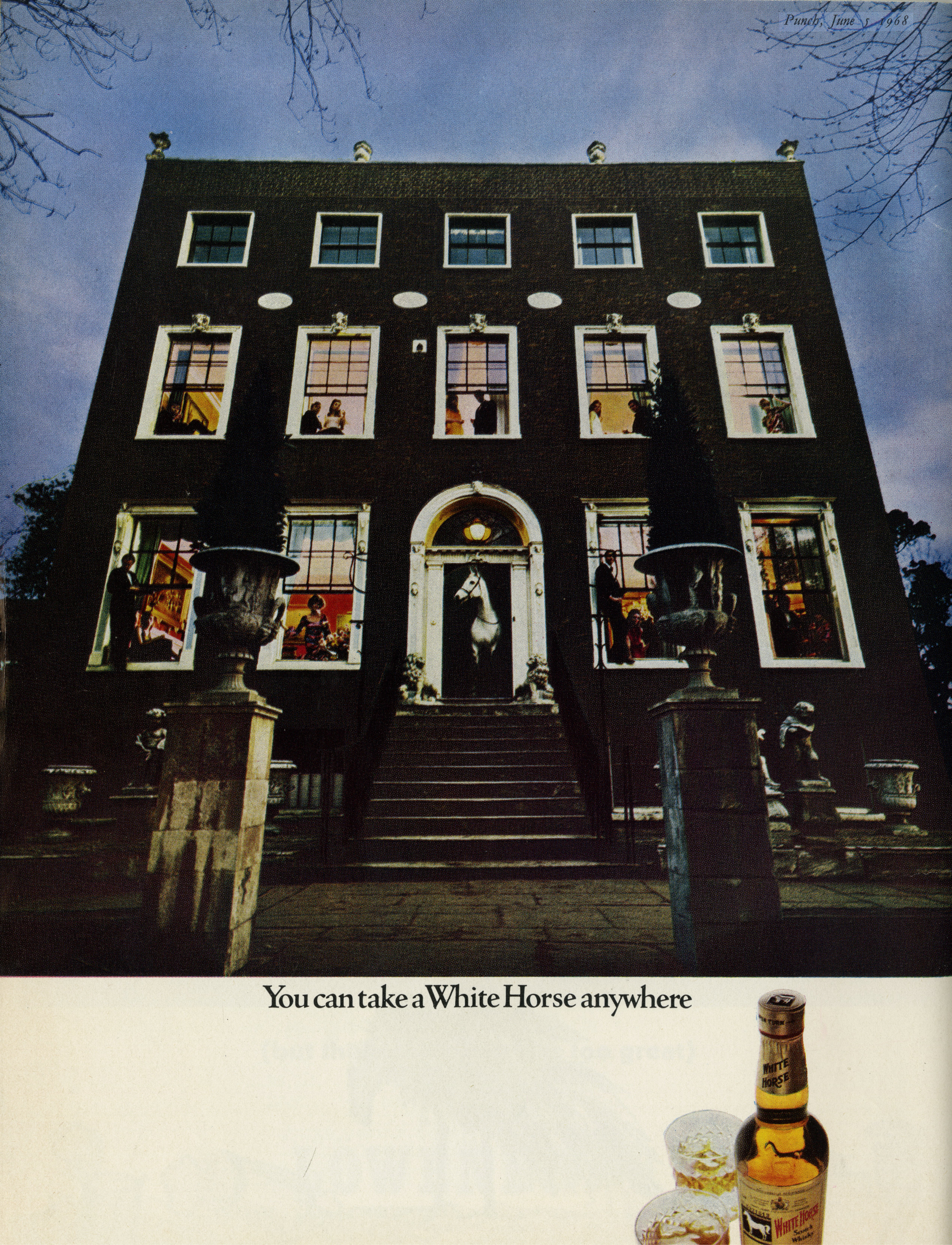
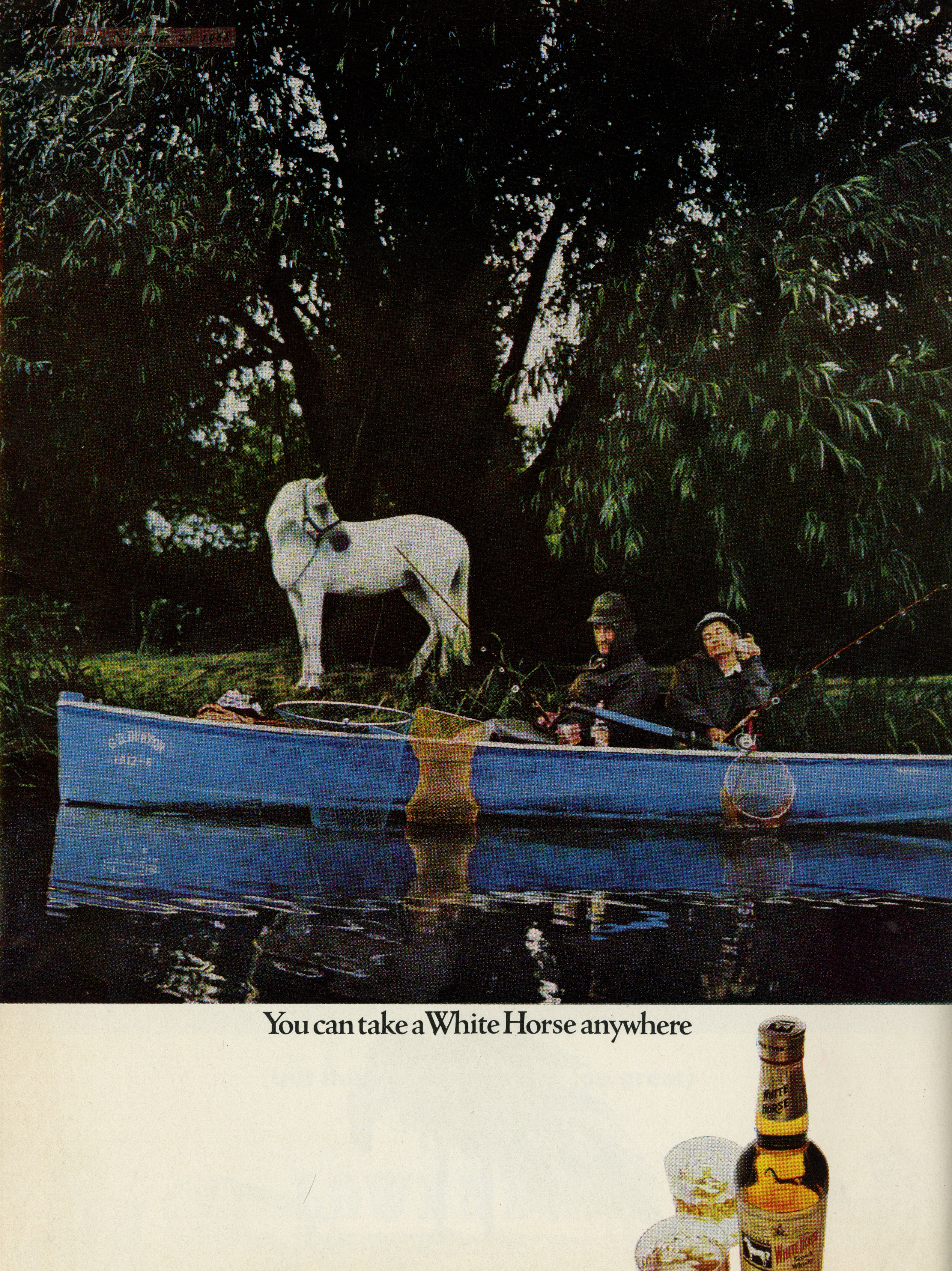


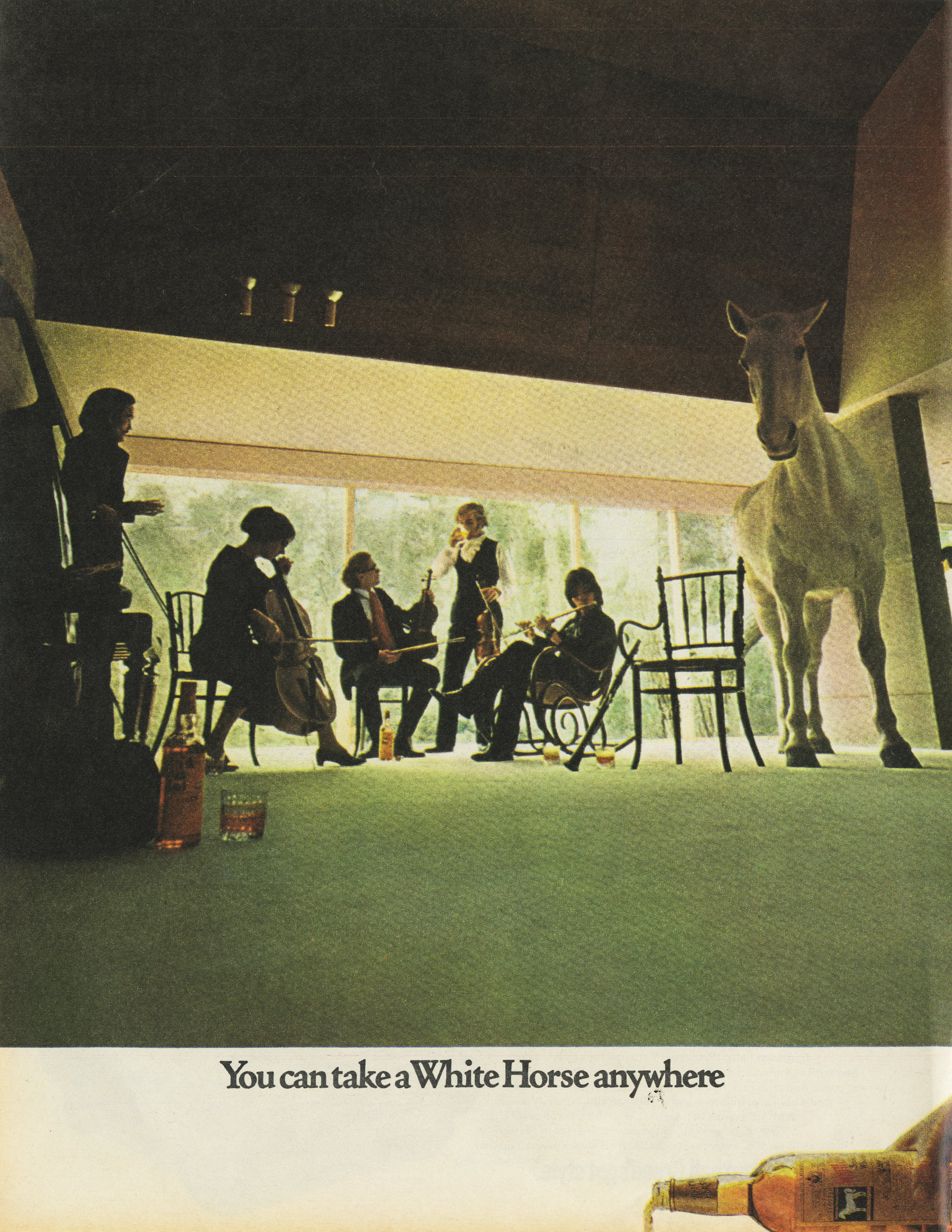
Both Regent and White Horse seem to have an unusually simple, playful vibe for the period?
Yes, I think I may have had something to do with that, but there’s always arguments about who created what, Len Heath and I still argue about who wrote that line.
I’ve always believed, ever since working on Gibbs SR, that when working in multi media you need a strong, visual click.
So that you can say the Regent ads = Girl with revolver, the White Horse ads = A White Horse in unusual situations, Gibbs SR = Ice block.
It’s a kind of mnemonic, I’ve always believed that creates very memorable advertising.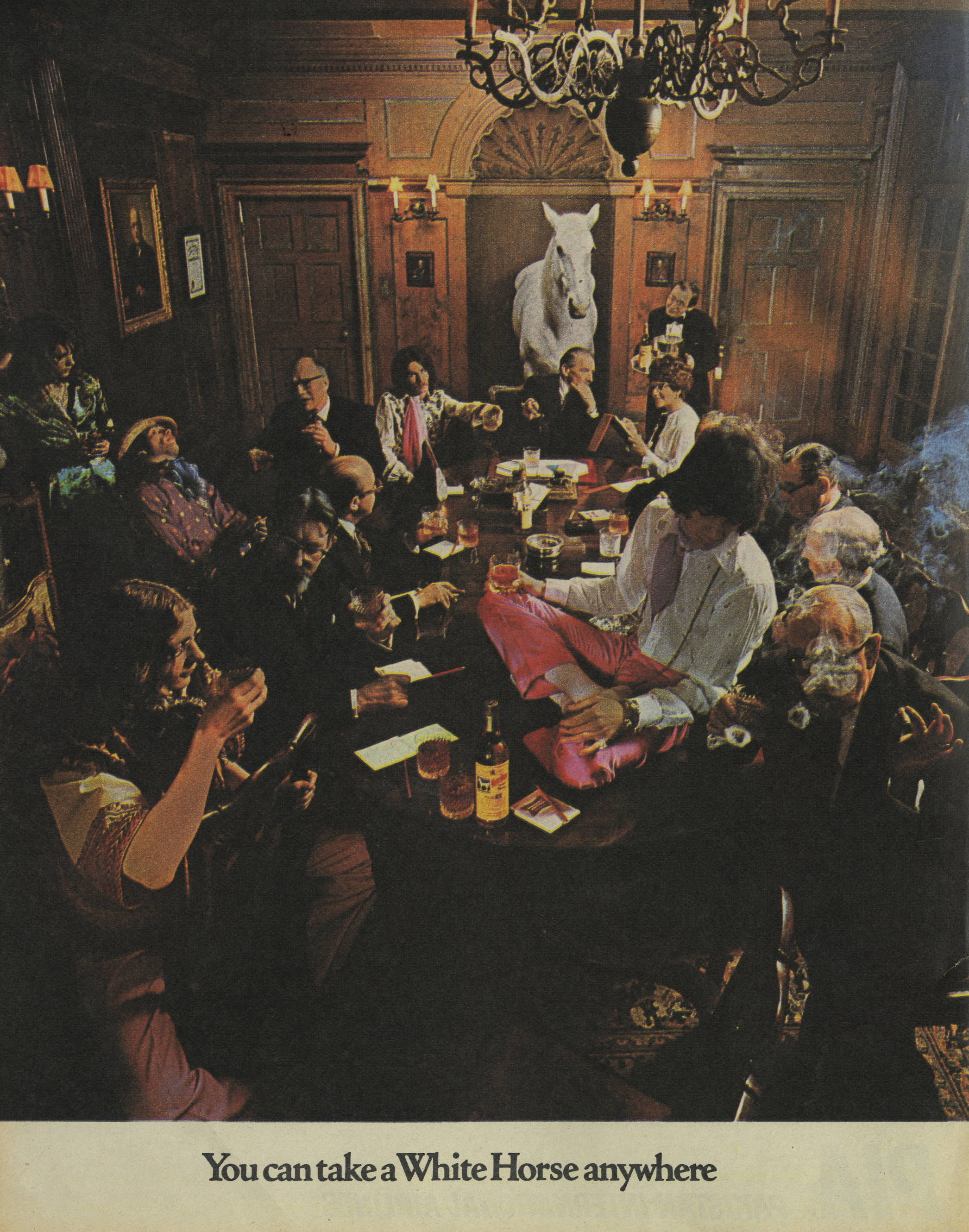


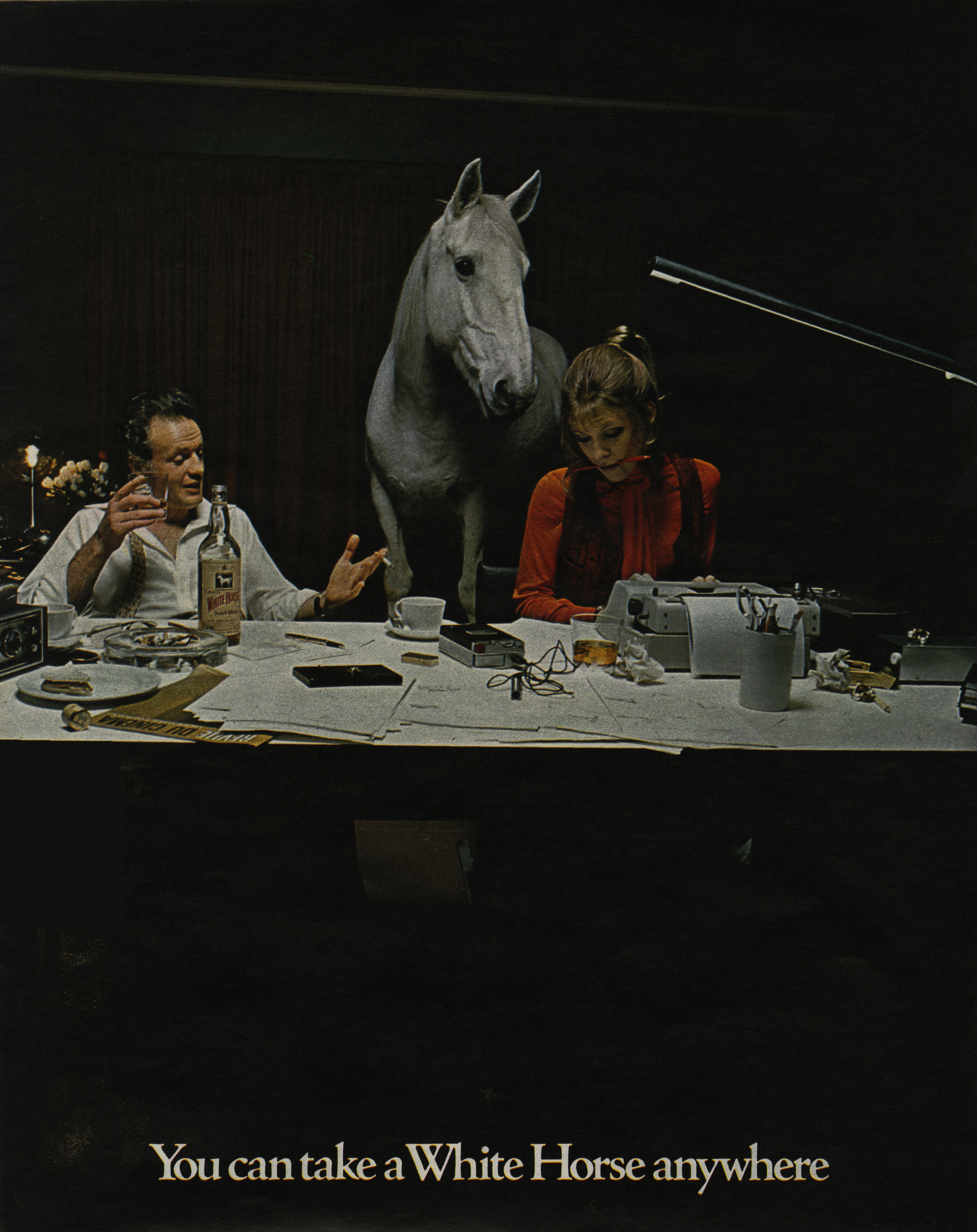


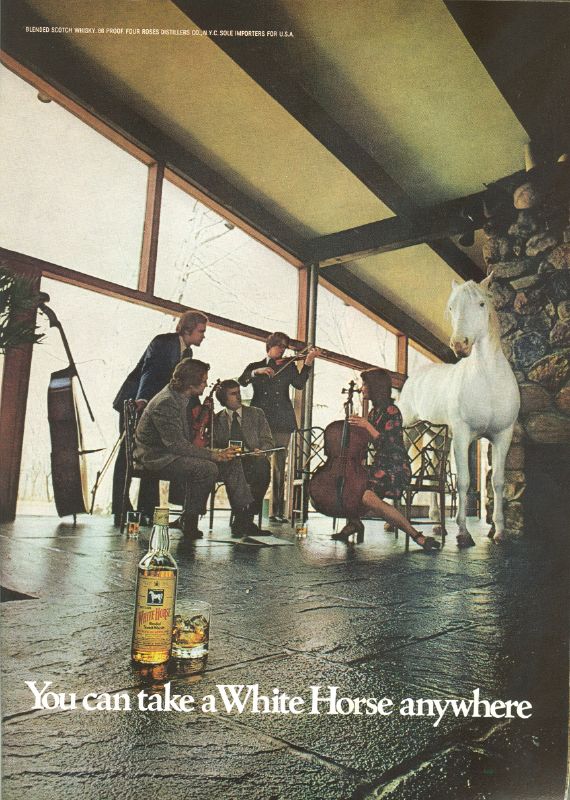
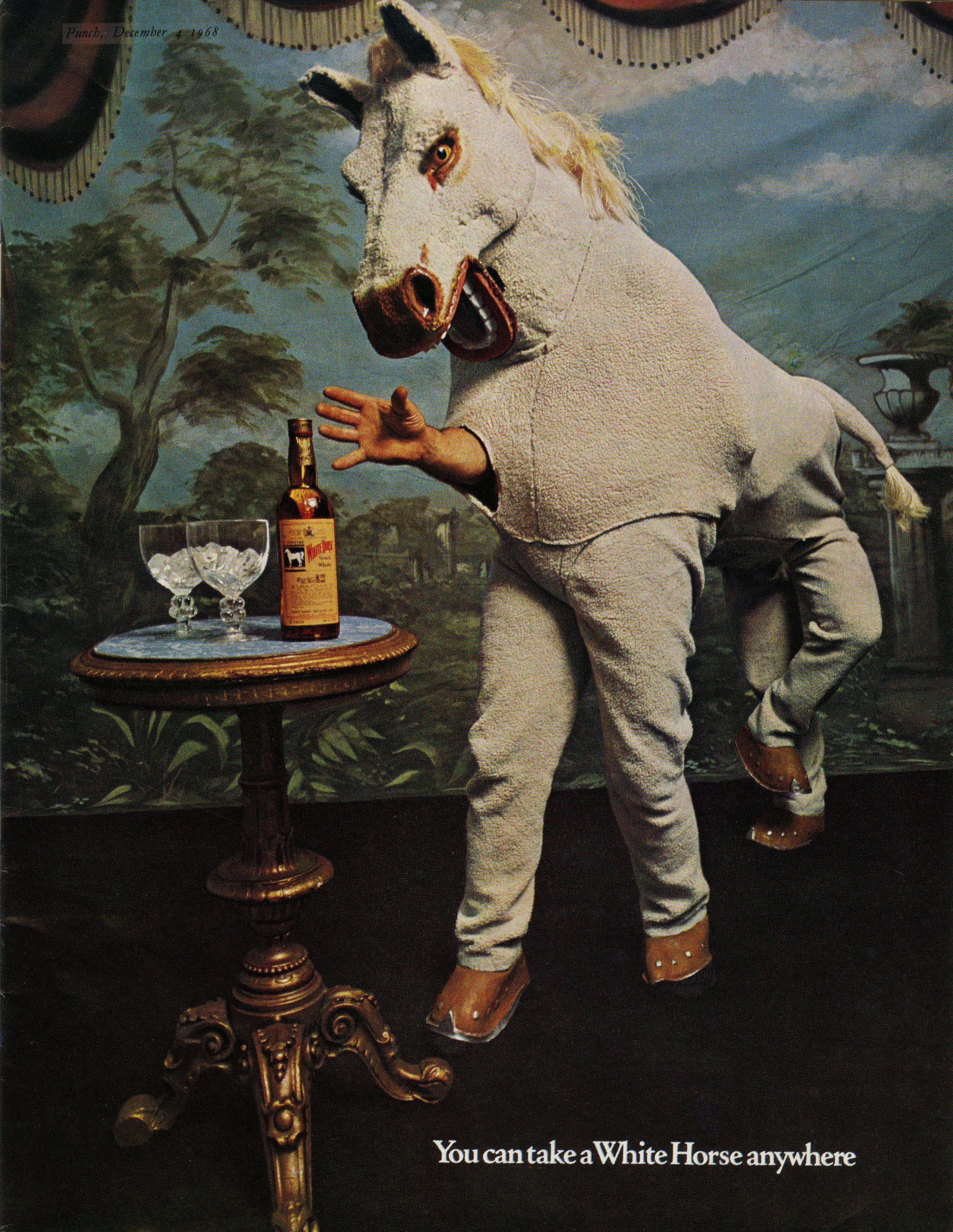
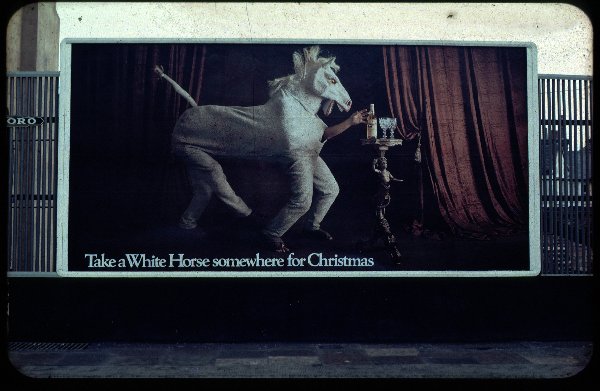
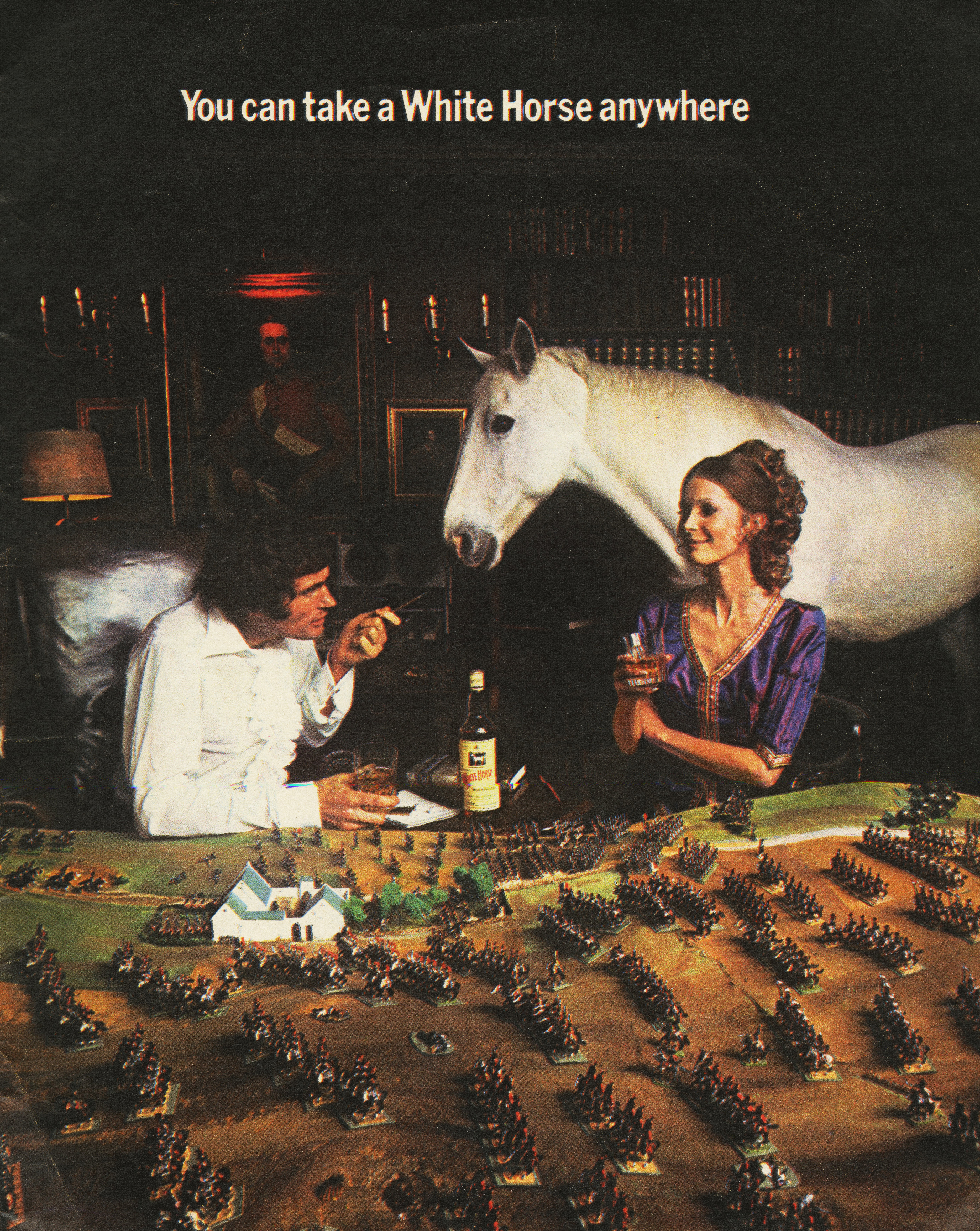
 Were you making many commercials at the time?
Were you making many commercials at the time?
We were, the one I remember most is the one we did for the transition from Regent Petrol over to Texaco Petrol.
In real life, with no computer manipulation, we actually unveiled a new petrol station by having a helicopter lift a giant sheet from it.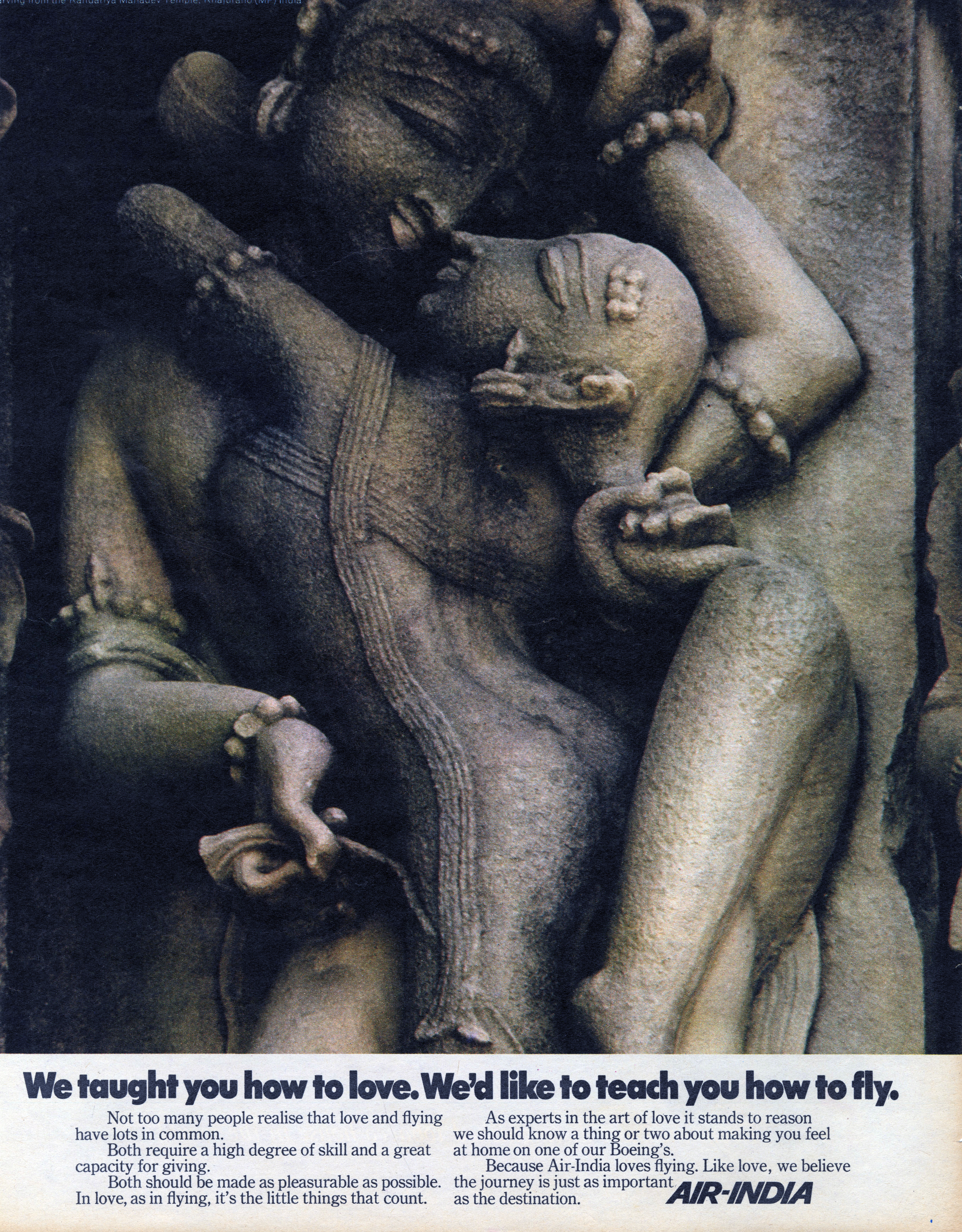
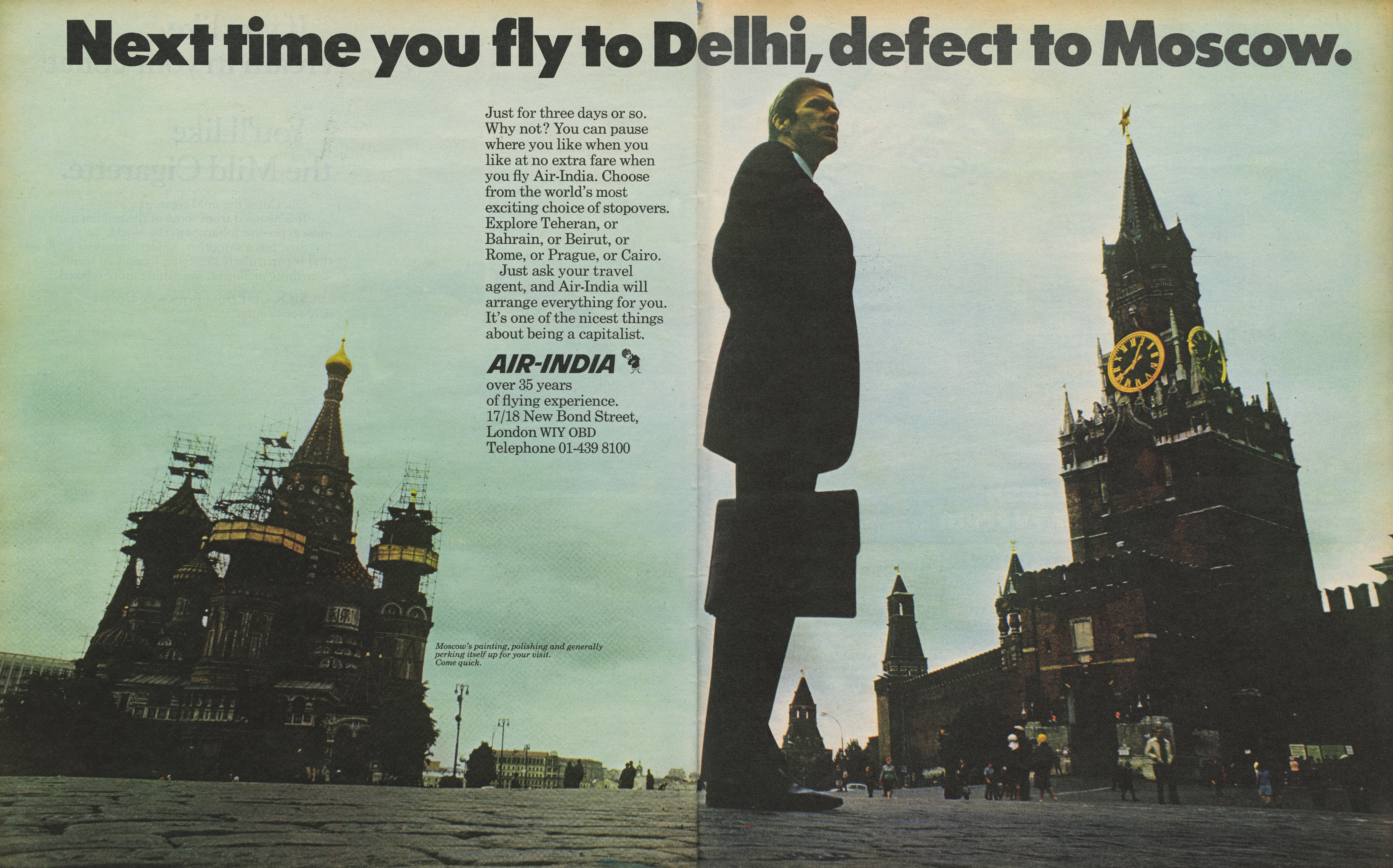



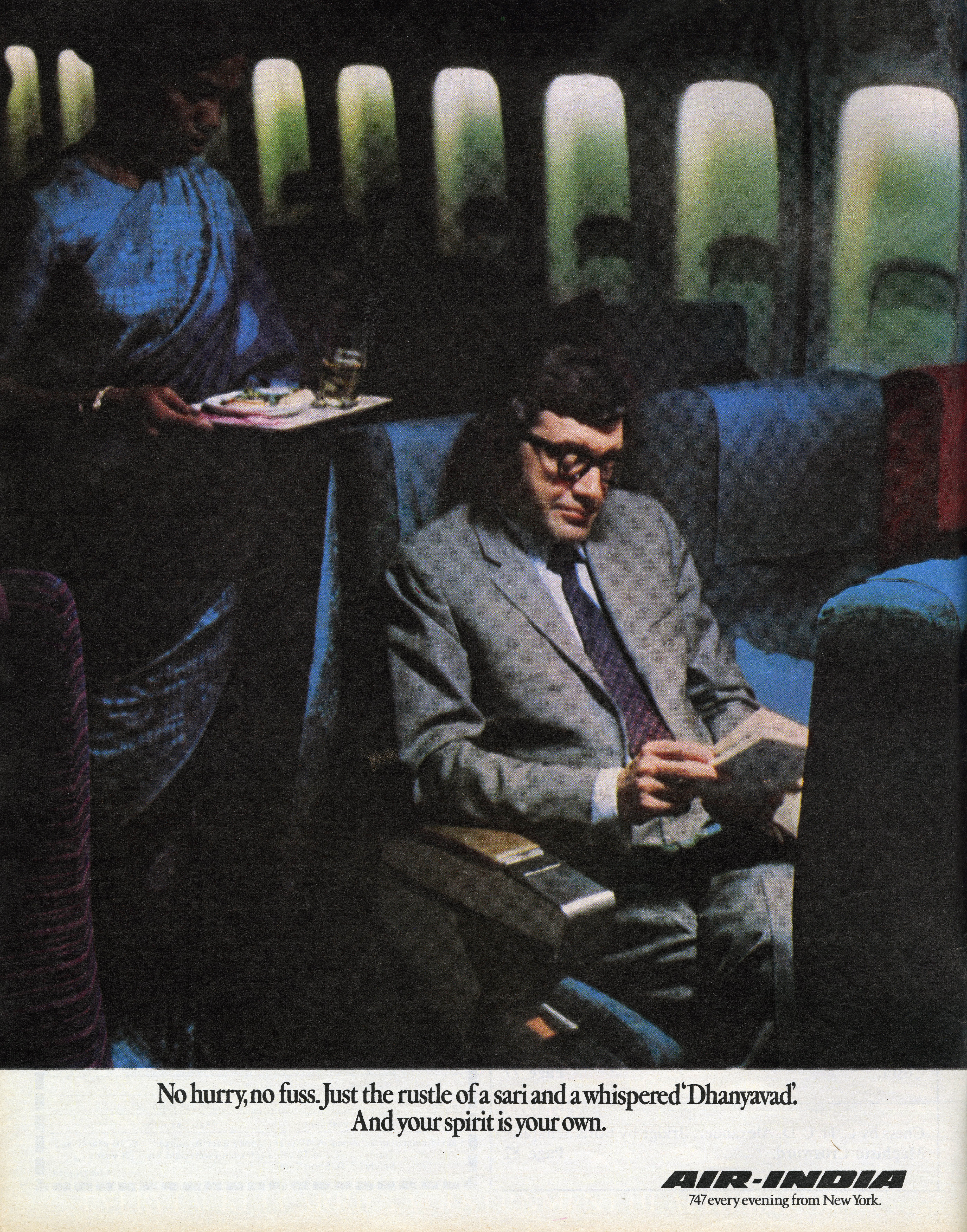
I love the Salvation Army campaign, particularly the art direction; unusual but so appropriate, the type is as ill-treated as the people in the ads.
Well that’s pure David, (Holmes).
There was a lot of controversy when were given the business, an ad agency getting paid by a charity! We just asked to be paid cost, although we ended up subsidising it tremendously.
It was the brain-child of David Kingsley, he believed very much in the Salvation Army and their work, he also believed that if you asked for a specific amount, £1, which was quite a lot of money in those days, you were far more likely to get it.
Originally the line was ‘For God’s sake give us a pound’, David presented them the line and rightly, in retrospect, they said ‘it sounds like begging, couldn’t we say ‘For God’s sake care’?’.
As they were arguing there was a clap of thunder outside, David said ‘Well, if you are going to bring in re-enforcements I’m giving in.’


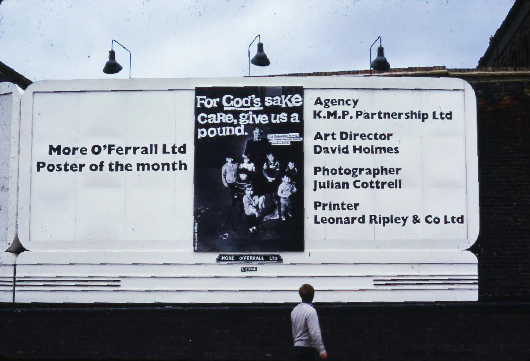
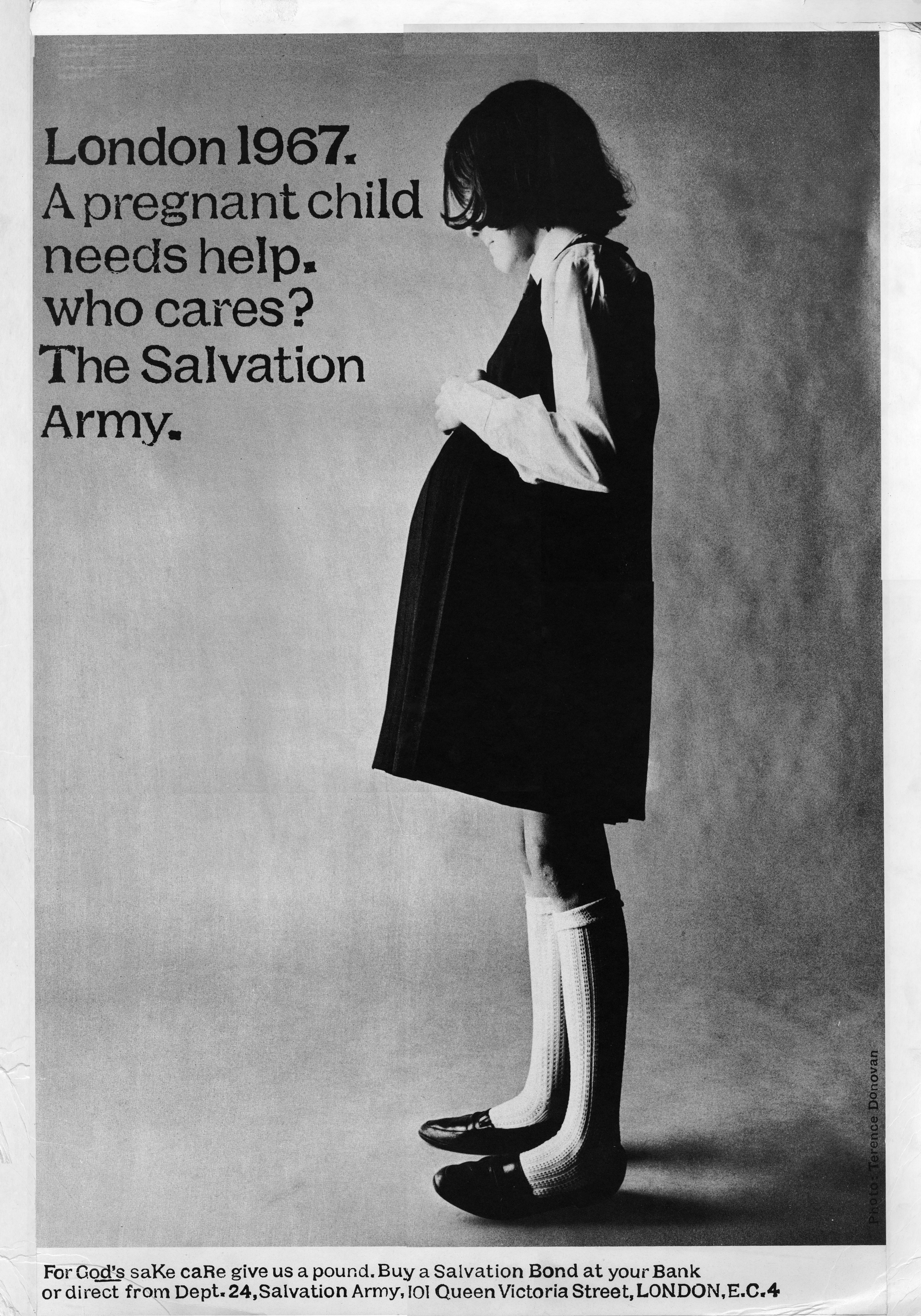


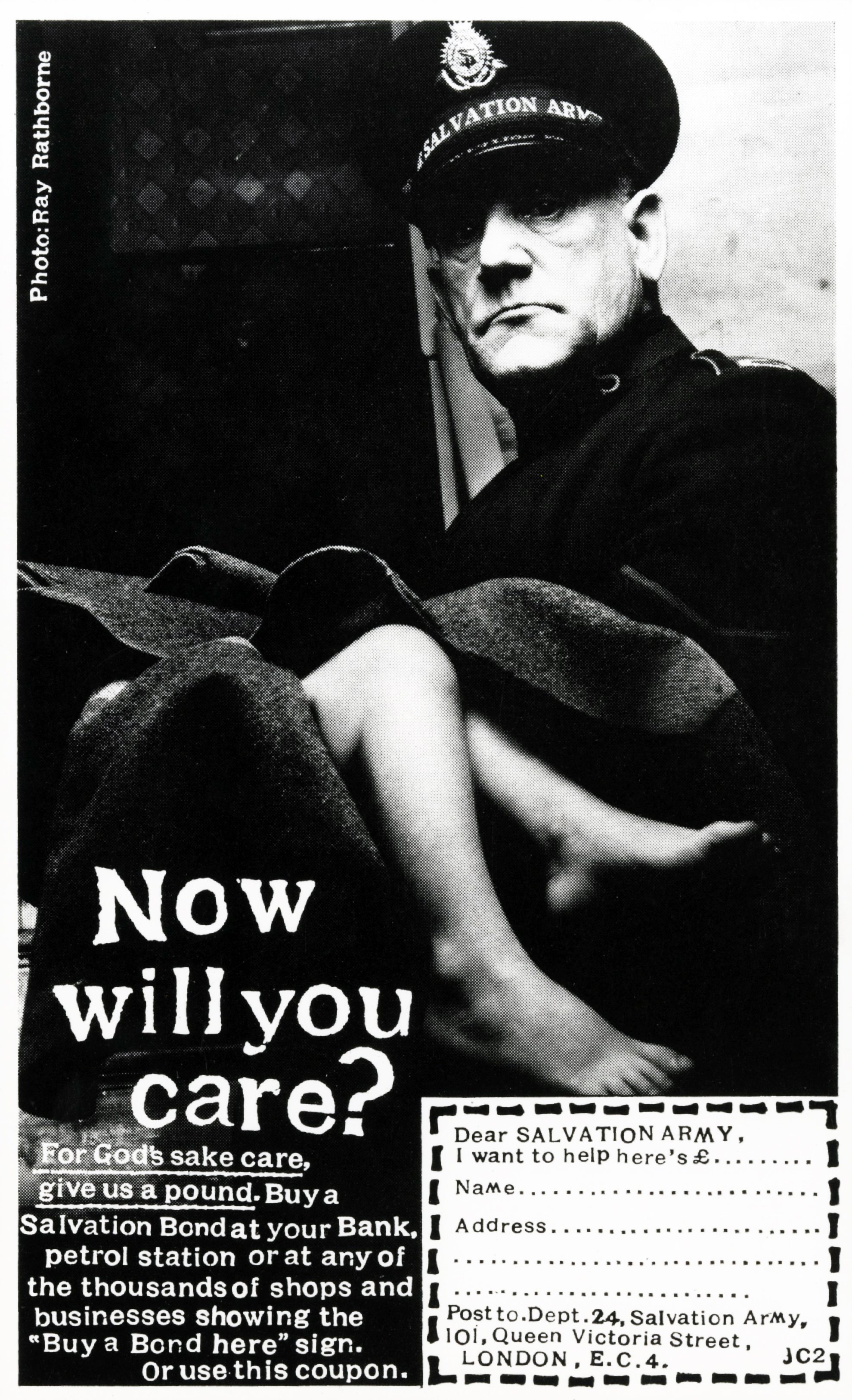

What were you like as a creative Director?
I think I was probably seen as a soft touch.
I always found the best way to handle creative egos was to listen more than you talked,
I’m no good at the ‘THIS IS SHIT! DO IT AGAIN’ approach.
You partner David Kingsley was very involved with the Labour Party, which lead to KMP working the election campaign.
The ‘Yesterday’s Men’ poster is often cited as swinging the 1970 election campaign against the Conservatives?
It was one of the first ‘knocking’ posters, considered ‘not cricket’ at the time.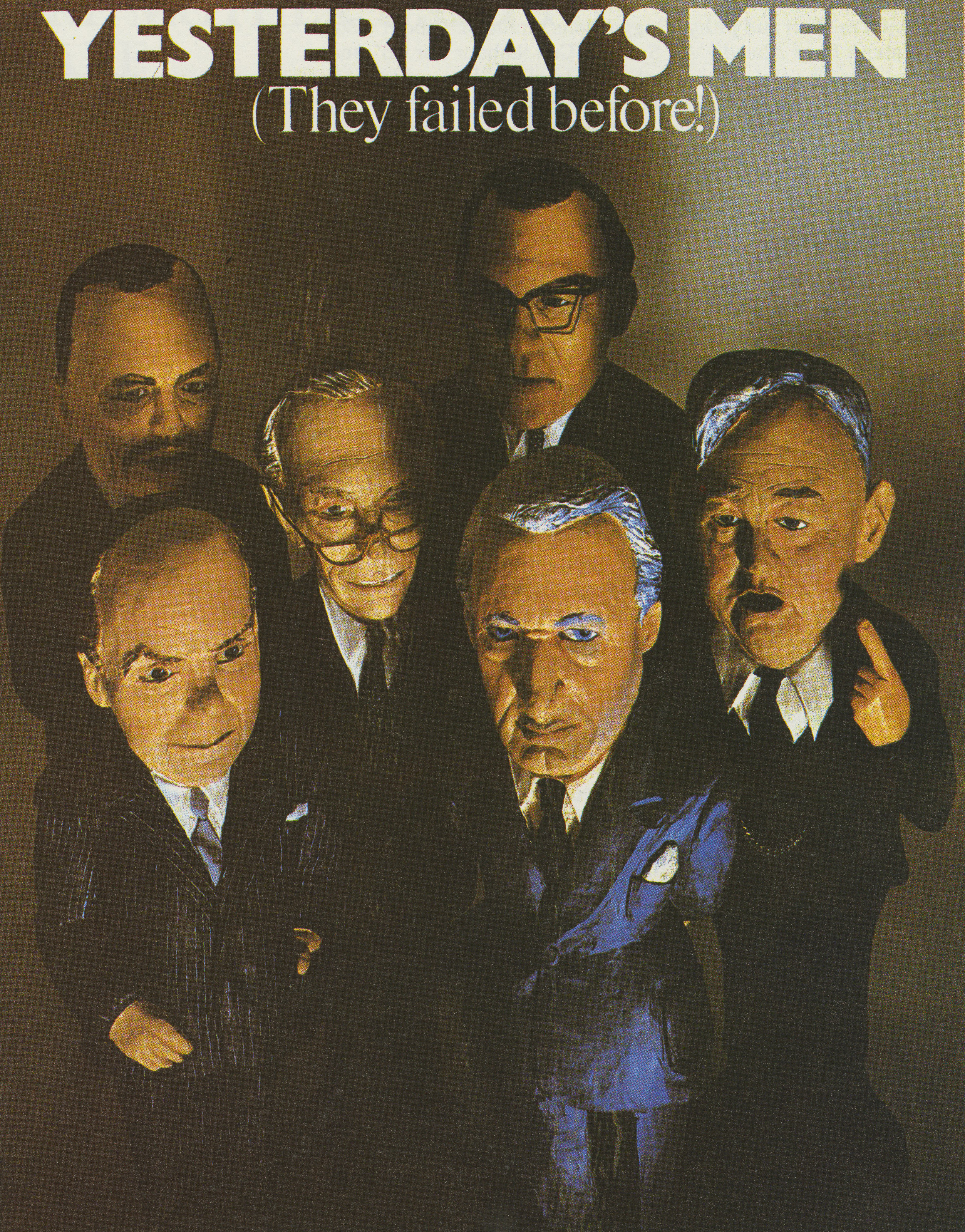


 What did you look for when hiring Creatives?
What did you look for when hiring Creatives?
Never hire a pair of hands, always hire a head.
I looked for inventiveness, a certain kind of style and also for people who were nice to work with, we were a team, I tend to think that many people are better than they are given credit, I would be more like an Arsene Wenger than a Ferguson.
I must say we had a wonderful time, we didn’t know what we didn’t know, if you are going off in unchartered territory you don’t know what not to do, so you just go ahead and do it, it either worked or it didn’t and if it didn’t we dropped it and moved on.
Also, I tried to run it, well, my bit of it, like Young & Rubicam, they were very good at handing down responsibility, in a way that was unheard of in the agency world.
For example; in the fifties, when everybody had expense acccounts, people were measured by the size of their expense account, they said nobody has an expense account, everybody can spend whatever’s necessary in the service of the client, all you have to do is justify it when you get back.
It made you feel wonderful as a junior copywriter or whatever.
The other thing was they said was if a client ever tries to ask for a bribe or behaves dishonourably, then you have the right to walk straight out of the meeting.
Now nobody ever did of course, but it made you feel good.
Young & Rubicam always used to remember everyone’s birthday, which we also did, we’d also give a personalised glass with your initial on it.
I guess I was in charge of the Department of Nice Gestures.


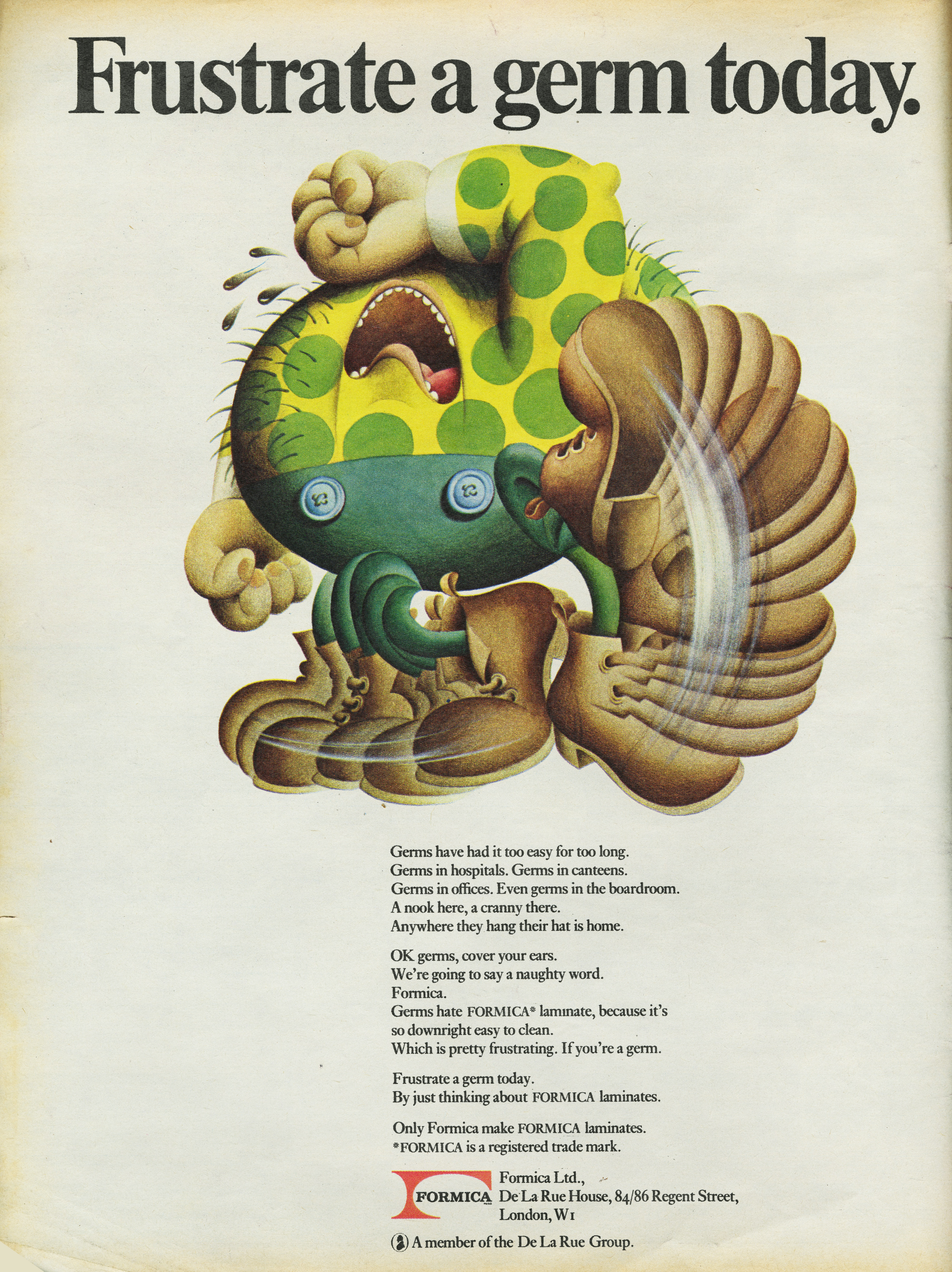
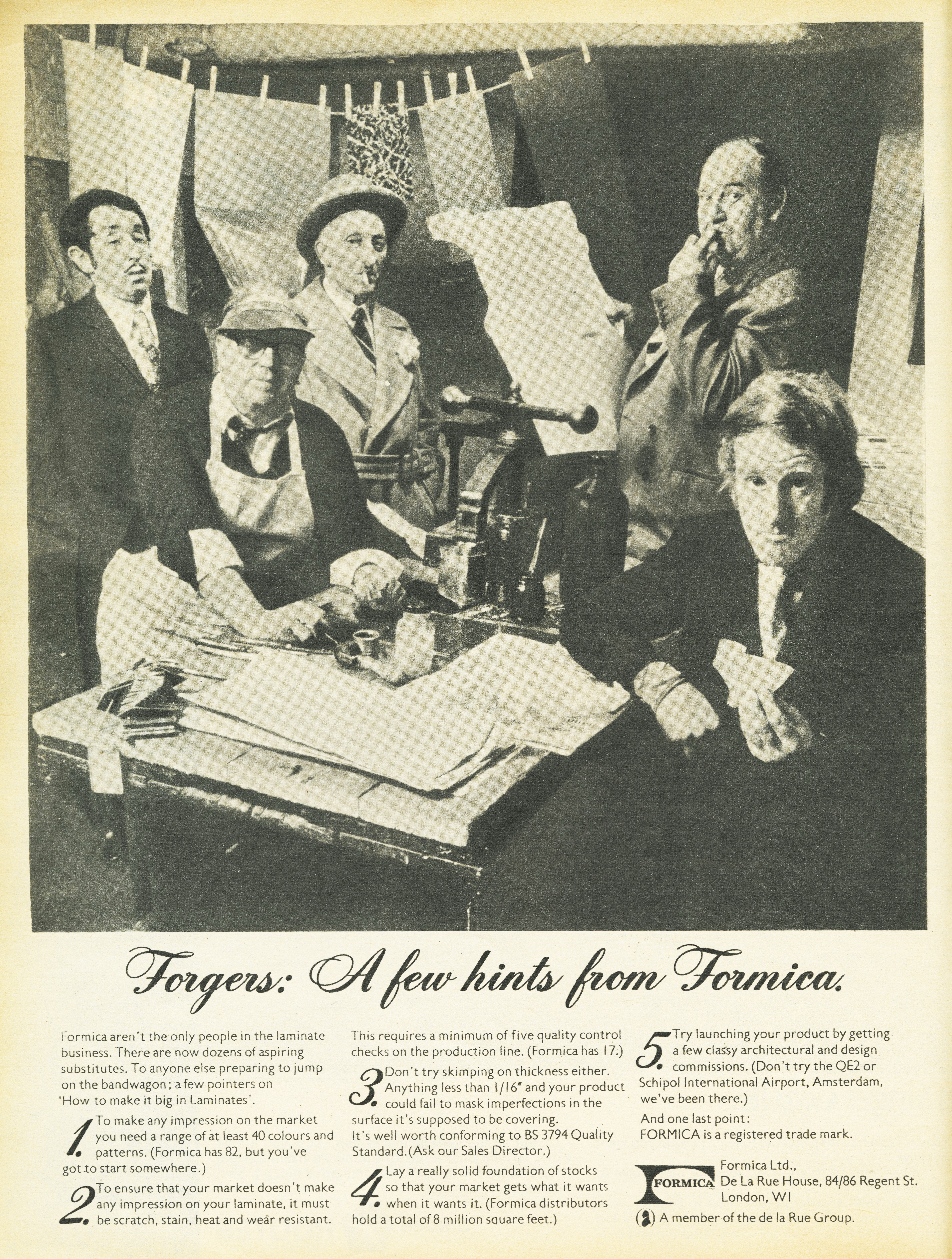
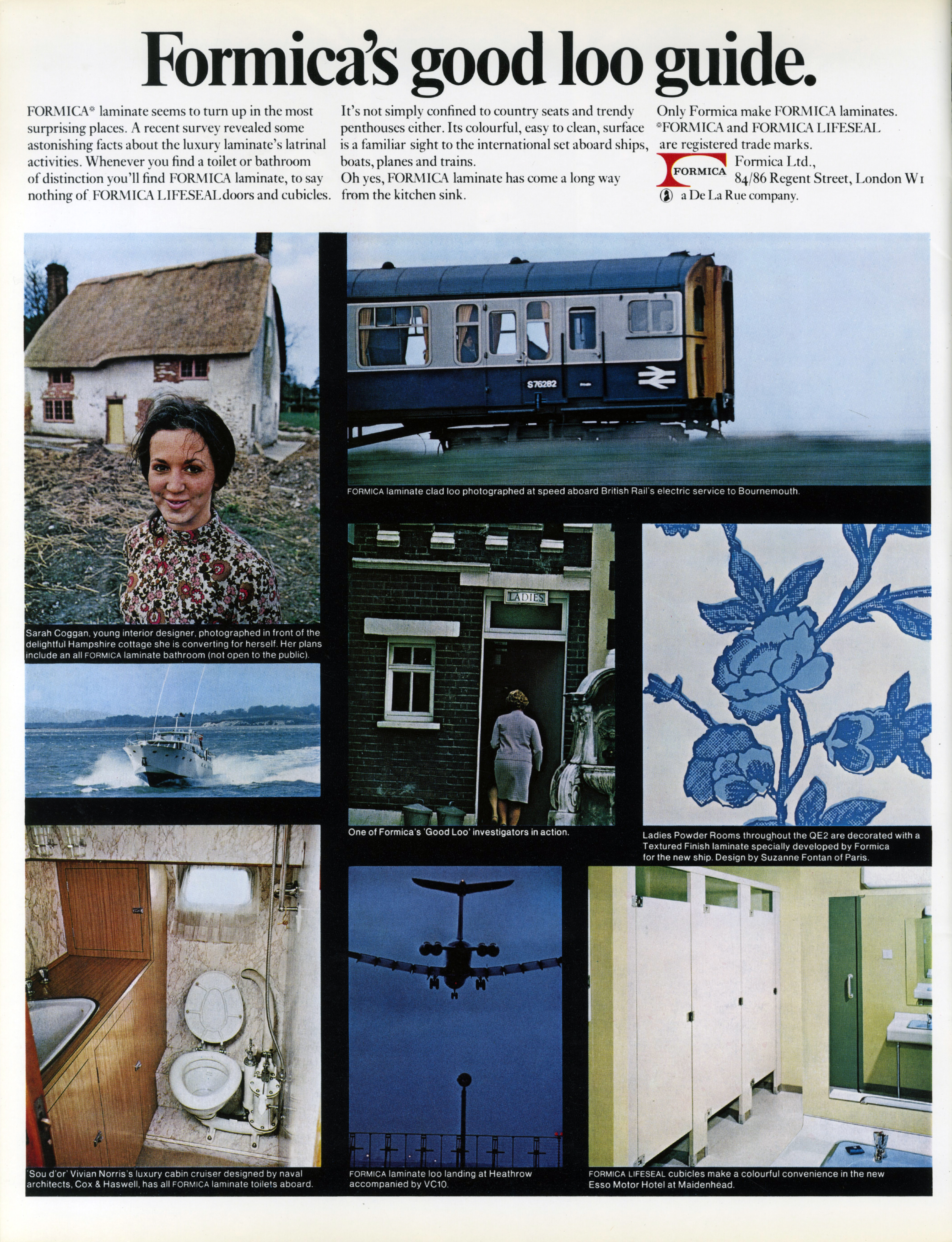
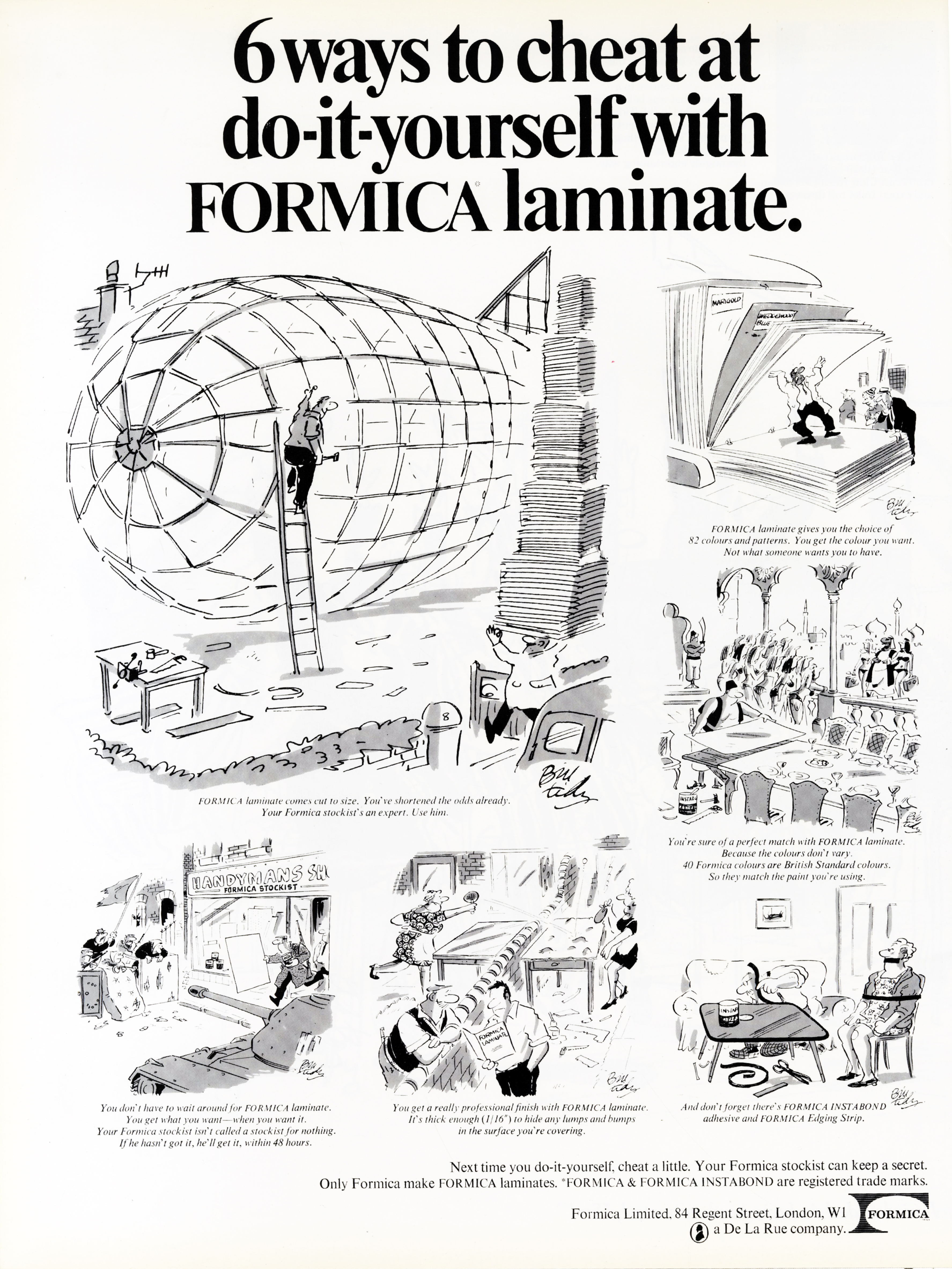
In 1969 you go Public, was that another first?
I think we were just ahead of Collett Dickerson Pearce?
We wanted to build a group of individual agencies as brands, using common services, like accountancy and media.
That’s how we spawned so many independent media companies.
I’m not sure it was a good idea, we were better advertising people than we were businessmen.

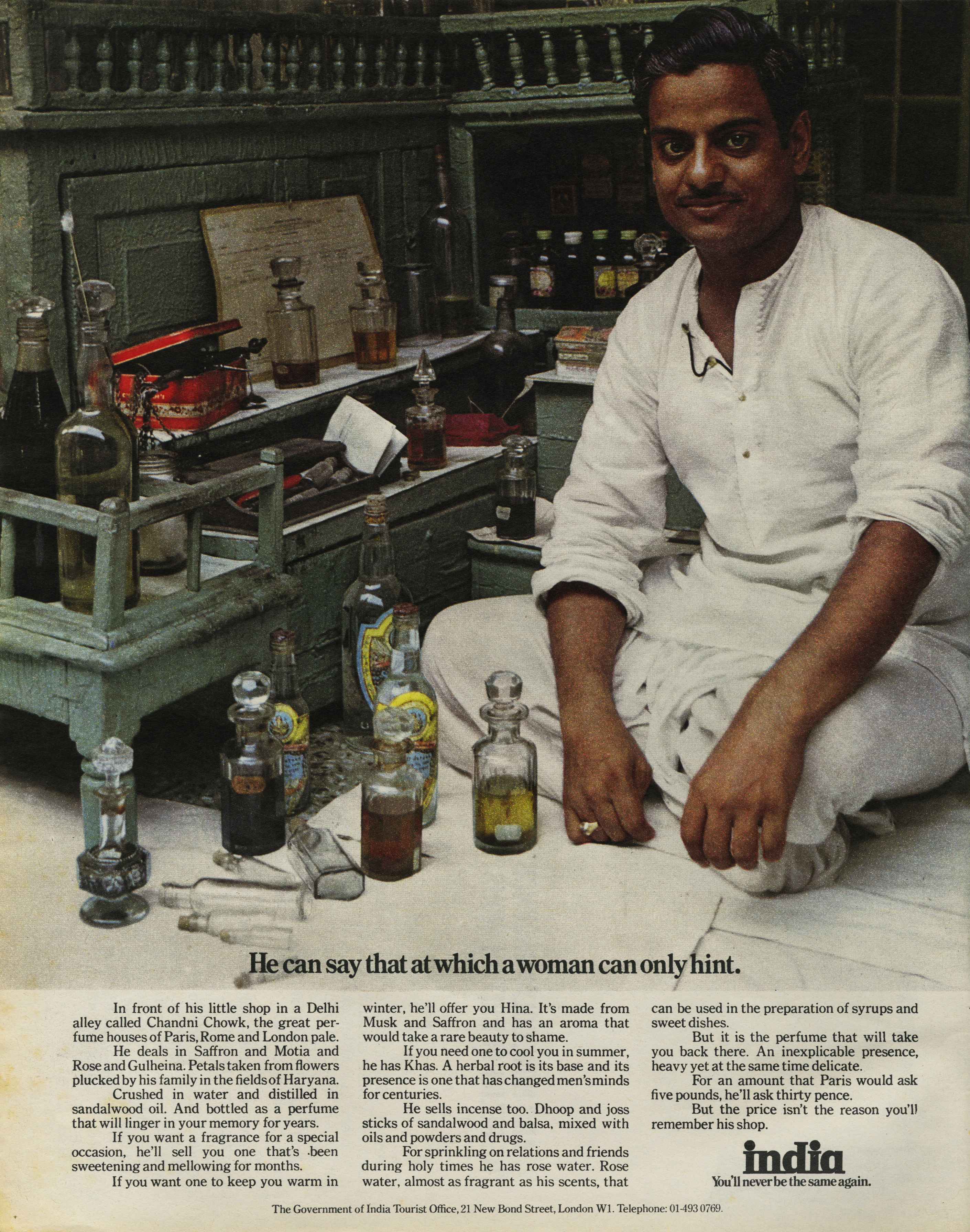
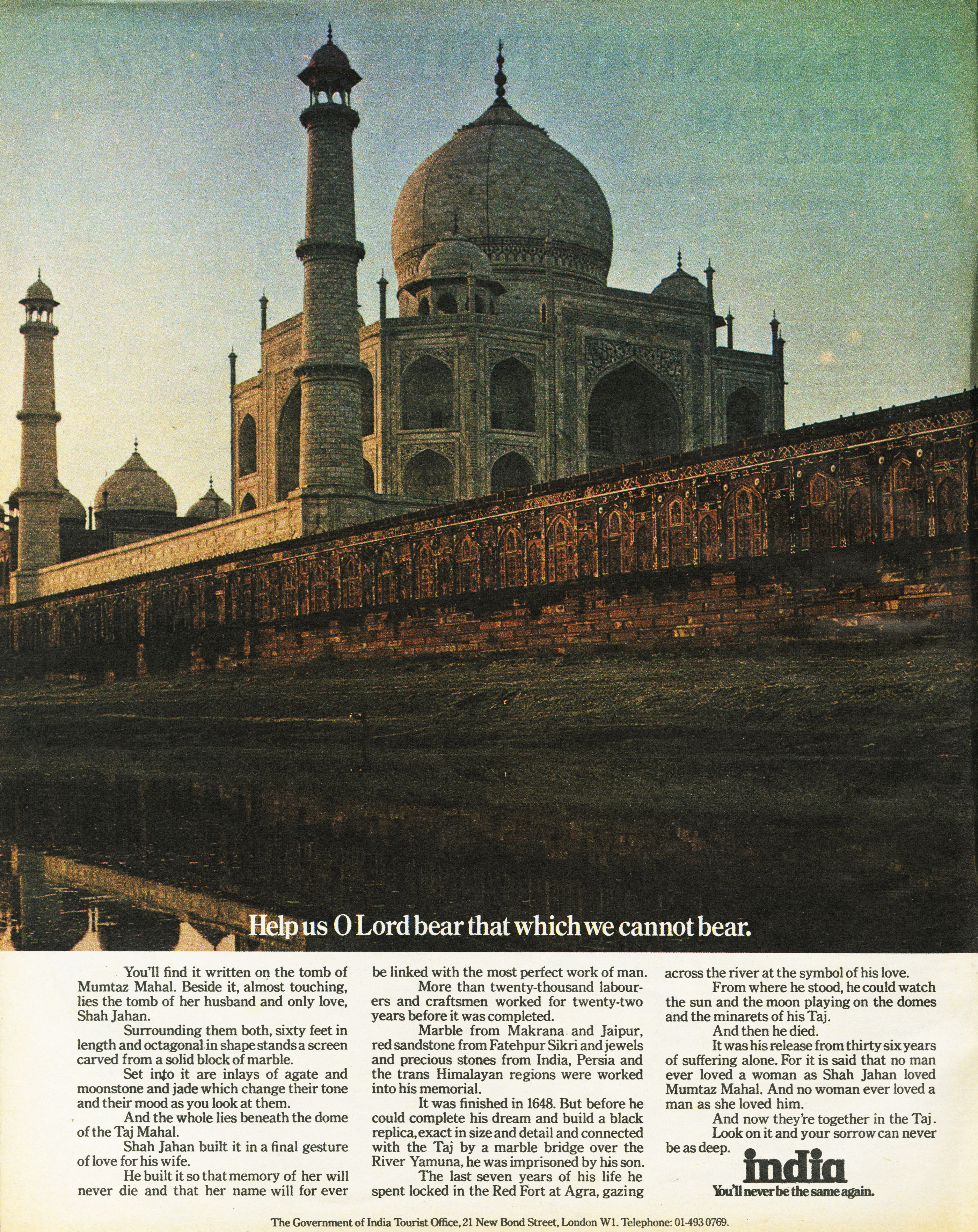
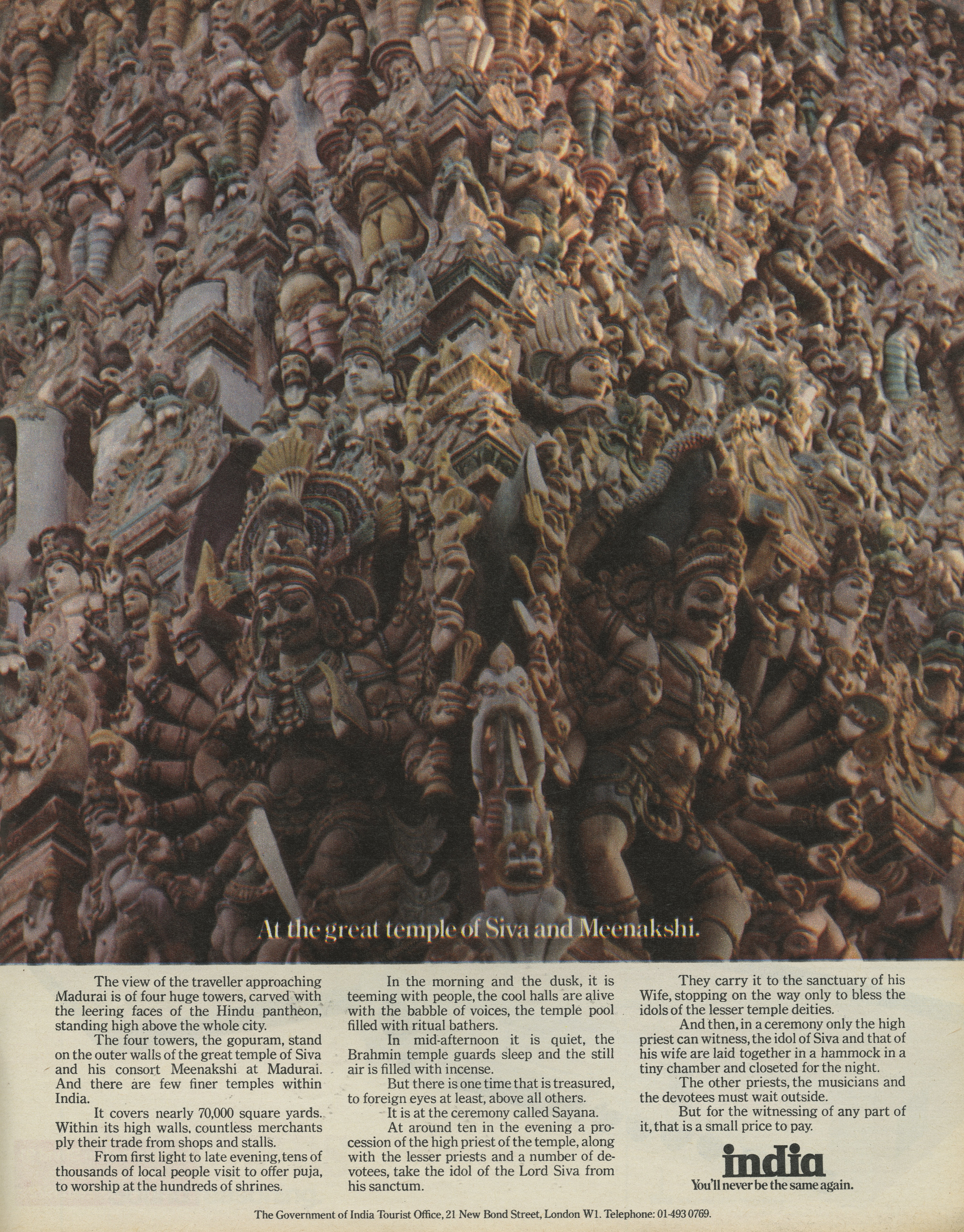

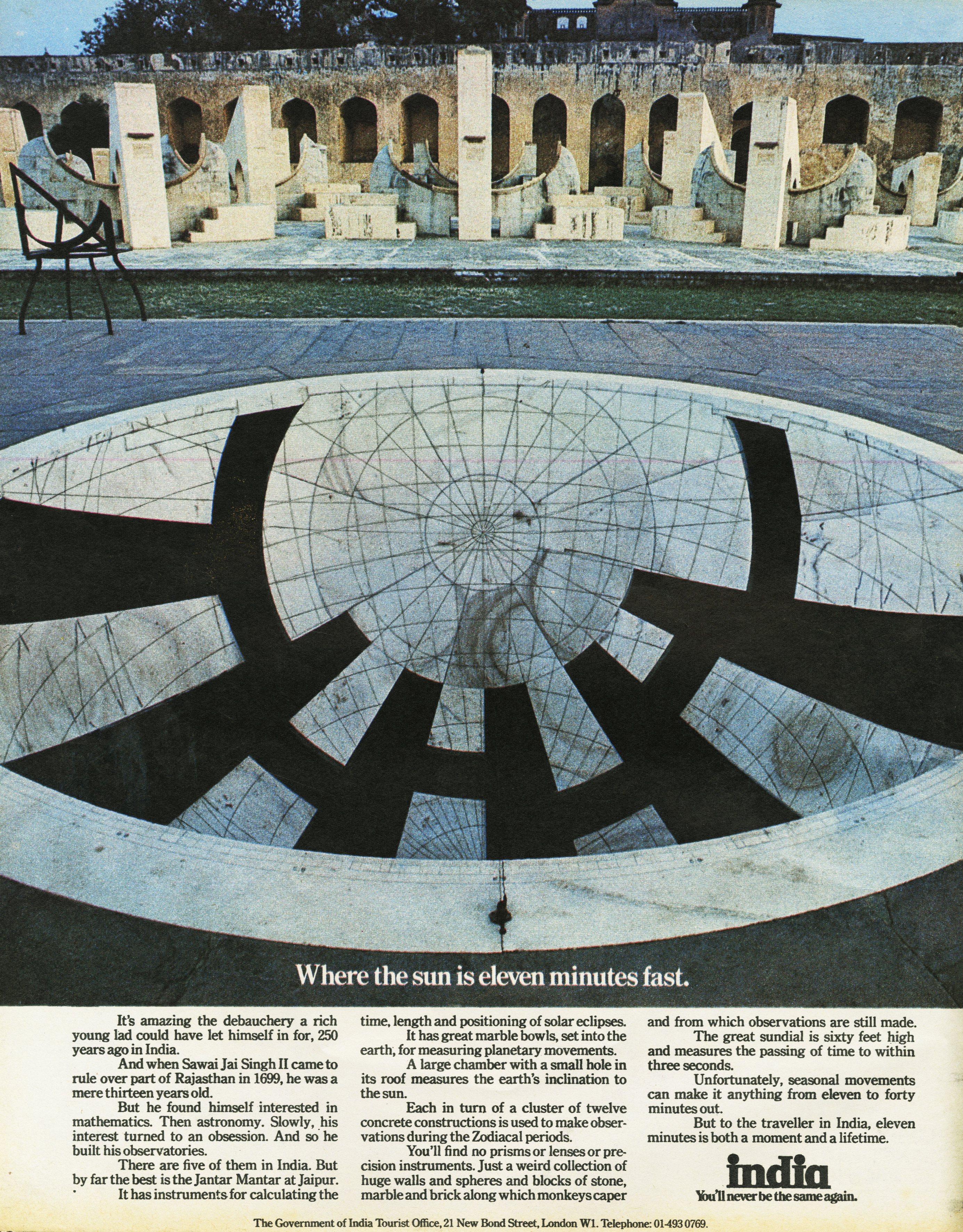

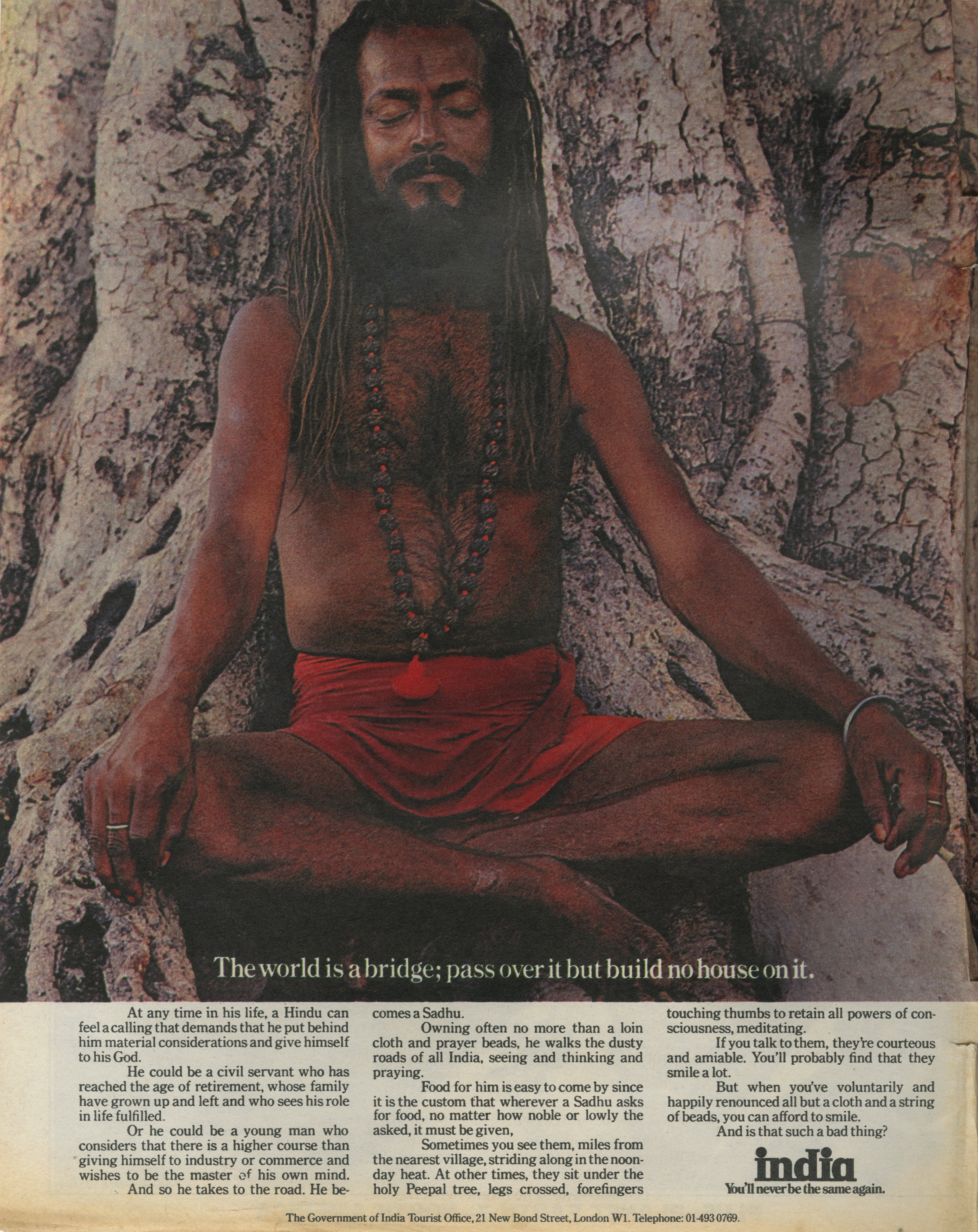
 Which agencies did you admire at this time?
Which agencies did you admire at this time?
We admired CDP’s work very much, although we were in direct competition with them.
The agency people admired at that time was Thompson’s, although their people didn’t tend to transplant very well, I don’t know why, they had such a strong Oxbridge culture, lead by Jeremy Bullmore and Stephen King, that the whole was stronger than the individual people.
Not very many of them did well when they left.
But they were the ones to beat, then Saatchi came along.
Someone once said Saatchi had the KMP play-book by their bedside when they started.
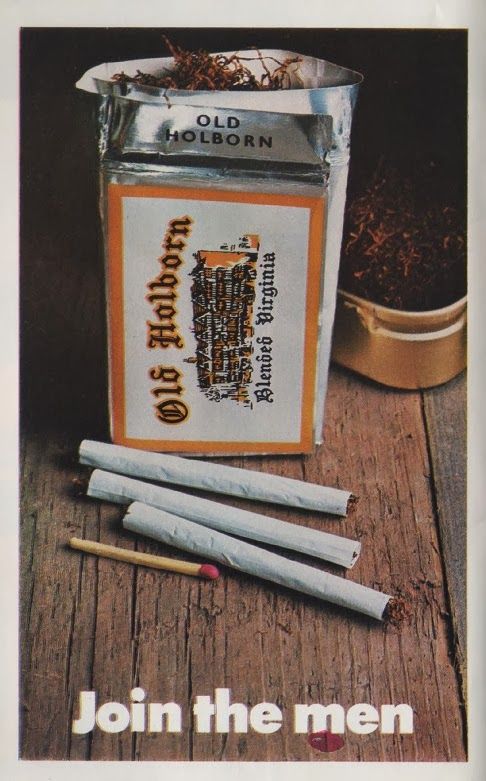
Why stop?
Well, in 1973 we had a huge bankruptcy on hour hands, Brentford Nylons.
They owed us several million pounds, which meant we owed several million pounds for the media we’d bought on their behalf.
It was a huge amount of money then.
It’s not chump change now, weren’t you insured?
Not sufficiently, they weren’t either, so we were liable for the media costs, we had to pay millions.
What happened was, I wouldn’t go into court and swear to this, but as I recall, Guinness were expanding their portfolio into service businesses, they’d bought a chain of newsagents and also bought a chain of advertising agencies, some of which we’d bought from them in exchange for our shares, so they became our largest shareholder, eventually took us over, in 1977.
The group disappeared into Guinness, eventually they changed course, divested themselves from the services and became Diageo.
KMP continued as an agency, went through several different owners and ended up being swallowed by Saatchi’s.
So you leave, take a couple of directorships, one at Dorlands, one at Young’s Brewery, and are then asked to run DDB?
That’s right, I said I wasn’t interested, that I was perfectly happy doing what I was doing, then someone asked would I have lunch with Bill Bernbach.
Again, I said I’m not interested and I don’t have time, ‘we’ll fly you over on Concorde, you can have lunch with Bill at The Four Seasons and we’ll fly you back on Concorde the same day?’.
An offer you couldn’t refuse?
How could you?
Bill was very persuasive, charming, calm, avuncular, took me back to the offices, showed me around and then offered me the job.
He was lovely, he’s one of those Americans who’ve made it so can pretend to be really nice.
How was it?
Horrible!
I was Chairman and Chief Executive of London for three very unhappy years, 1980-83.
Having not worked for Americans since Y&R, I’d forgotten how just how soul-destroying it can be.
It was fraught with politics, I did the job they’d hired me to do, which was put it back on a profitable basis, then got straight out.
Amazing, thanks for your time Brian, see you in The Flask.
My pleasure, I’m more a Red Lion & Sun man, actually.

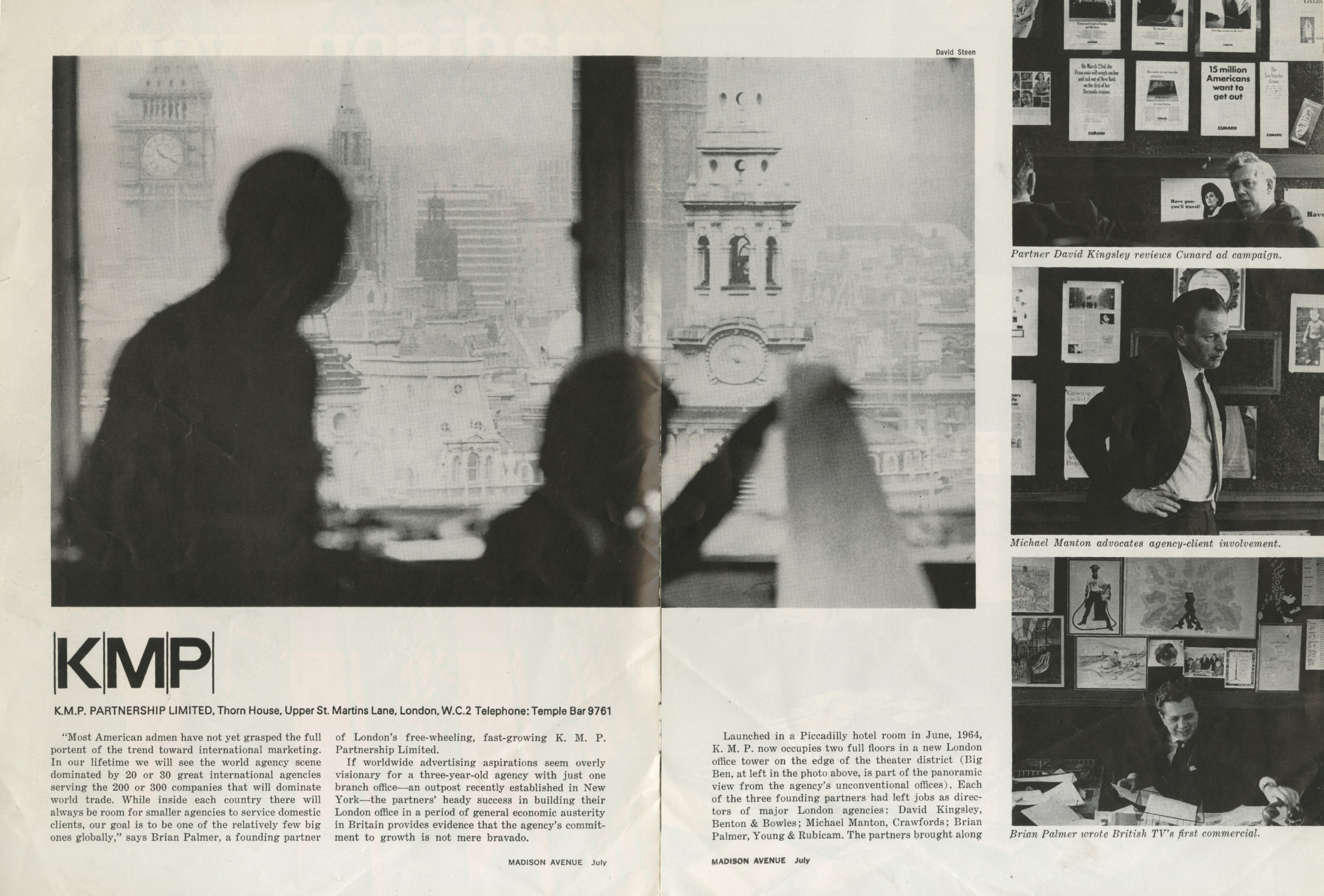
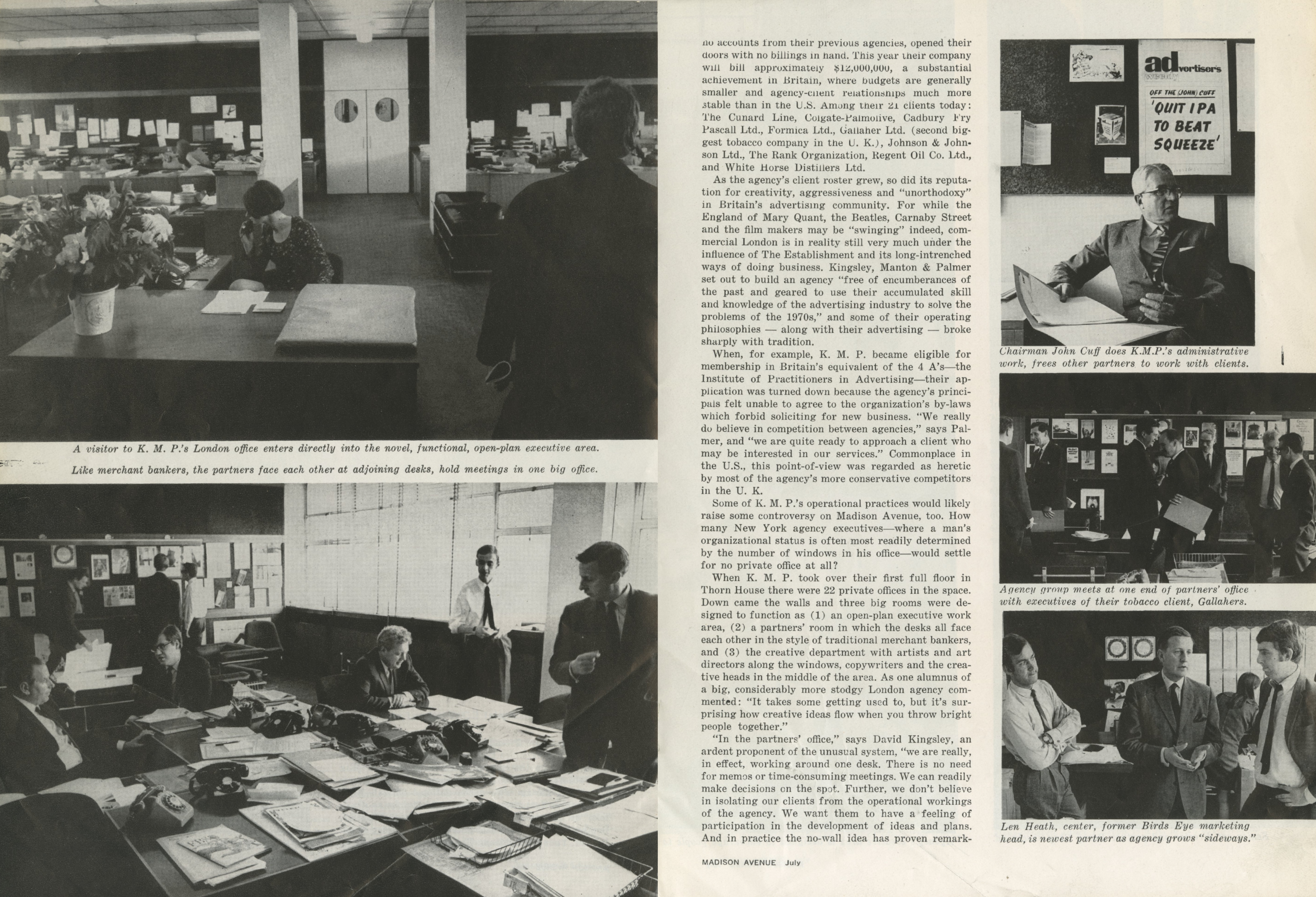


I really enjoyed this Dave. Keep ’em coming.
Thanks Phil, hope you’re well. Best, D.
Wonderful man, wonderful stories…
Thanks Gary, Brian’s not bad either. Best, D.
It was so very interesting to read as this was happening whilst still at college and just before entering the advertising industry myself. Keep up telling us about our industry.
Hey Rolph, glad to be of service. Hope you’re well. Best, D.
Just posted this on “AdScam.”
How Brian Palmer changed my life!
Dave Dye’s excellent blog “Stuff from the loft” is featuring a piece on legendary British agency, Kingsley, Manton & Palmer, with particular emphasis on founding partner, Brian Palmer. KMP not only did great work, they also ignored the system at that time (Early sixties) by pitching for new accounts. Back then that was considered not very gentlemanly. They said fuck that, and went out and pitched everything in sight… With great success! Anyway, the interesting bit is that Brian literally changed my life. I was a junior AD at Y&R, London. Brian was head of TV and in fact wrote and produced Britain’s very first TV ad. One day he wandered into my office and looked at some layouts I had done for a shampoo. He said they were rather good and who wrote the copy? I did, I said. Well he said, you should become a writer. So I did. Went to America in 1963 and conned my way into B&B as a copywriter. Lived a life of debauchery ever since. Ah… The good old days. Thank you Brian!
Thanks George, nice story. Best, Dave
Dear Dave Dye, I’m not entirely sure, but I’m fairly certain Anthony Beerbohm worked at KMP in the TV department. Anthony died earlier this year, but perhaps you could pass this on to Brian Palmer? Thanks
Thanks Tom, I will do. Best, Dave
Charming chap.
What great work. The White Horse stuff is astonishing, in its way.
My brother Neil Palmer sent this interivew to me – Brian is my uncle and throughout my life and seeing him as much as we did I never knew all this about his career and the impact he had on the advertising world. Thank you for interviewing him and for us to be able to have this to share with the family. He is a legend.
Hey Iona, thanks for the message, glad to be of assistance. Dx
This was a really insightful article and I very much enjoyed seeing Duffy’s work with the Regent Petrol campaign. Sadly we don’t have these photographs within the Duffy Archive. If anybody could point me in the direction to get a copy we’d be delighted to have them!
Thanks Chris, must do that podcast/post on your Dad’s ads.
(Do you mean you don’t have the negs or copies of the ads? Or both?)
Dx
Hi Dave this is Sandie, I work with Chis and he would be happy to do a podcast re Duffy’s advertising work. In regards to the Regent Girl images – we only the negs for one studio session but it’s not a session that was featured in the blog post. Sadly we don’t have any tear sheets either. We are always keen to replace lost images in the archive so any assistance from any readers is very much appreciated and this is the image of the Regent Girl on our website https://www.duffyarchive.com/portfolio/regent-petrol-advert-1966/
We look forward to hearing more!
Hello. This is Richard French. I was 24 year old fifth employee at KMP. I worked for Kingsley at Benton and Bowles fresh off the boat from Cape Town. David must have known something I didn’t because soon after he quit B and B he invited me to the Reform Club to meet Manton and Palmer and offered me the job as his PA. Five years later KMP went public and appointed Mike Gold and me to the Board. We resigned the next day in a flurry of publicity to start French Gold Pulman. Mike Pulman sadly died six months later and we became French Gold Abbott. Later Gold started GGT and I took over an agency which became FCO. KMP was a great base and where we learned it all. Certainly well enough to be able to quit the business at a sensible age live a long life with loads of children and hoards of grandees. My wife whom I met and married 55 years ago was KMP’s fourth employee. Thank you Brian and of course David and Michael. Its good being nearly 80 and living down here in the sun in SW France with no regrets. So many criticize the ad world today. I just think its different. As ever was. Bravo. RF